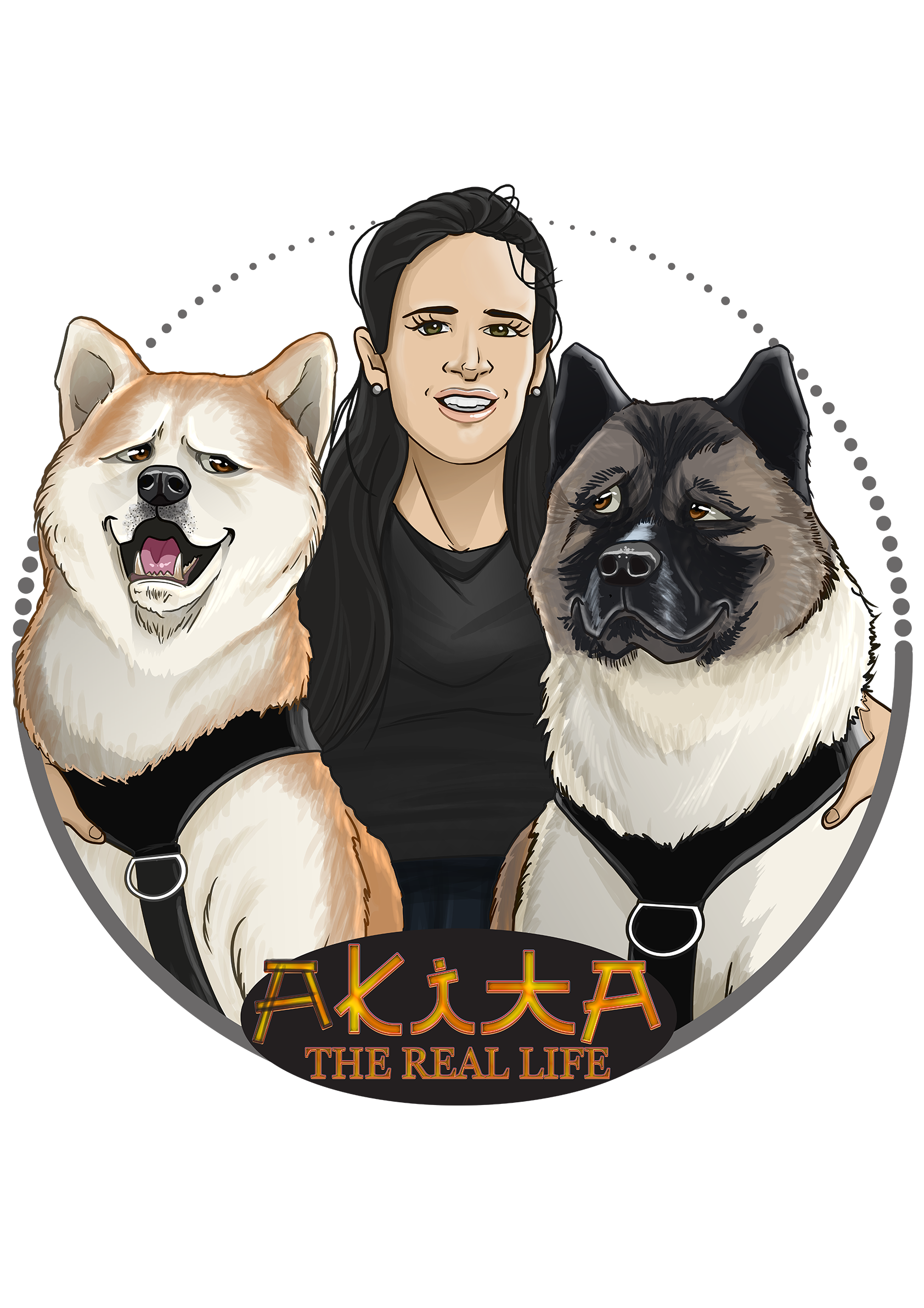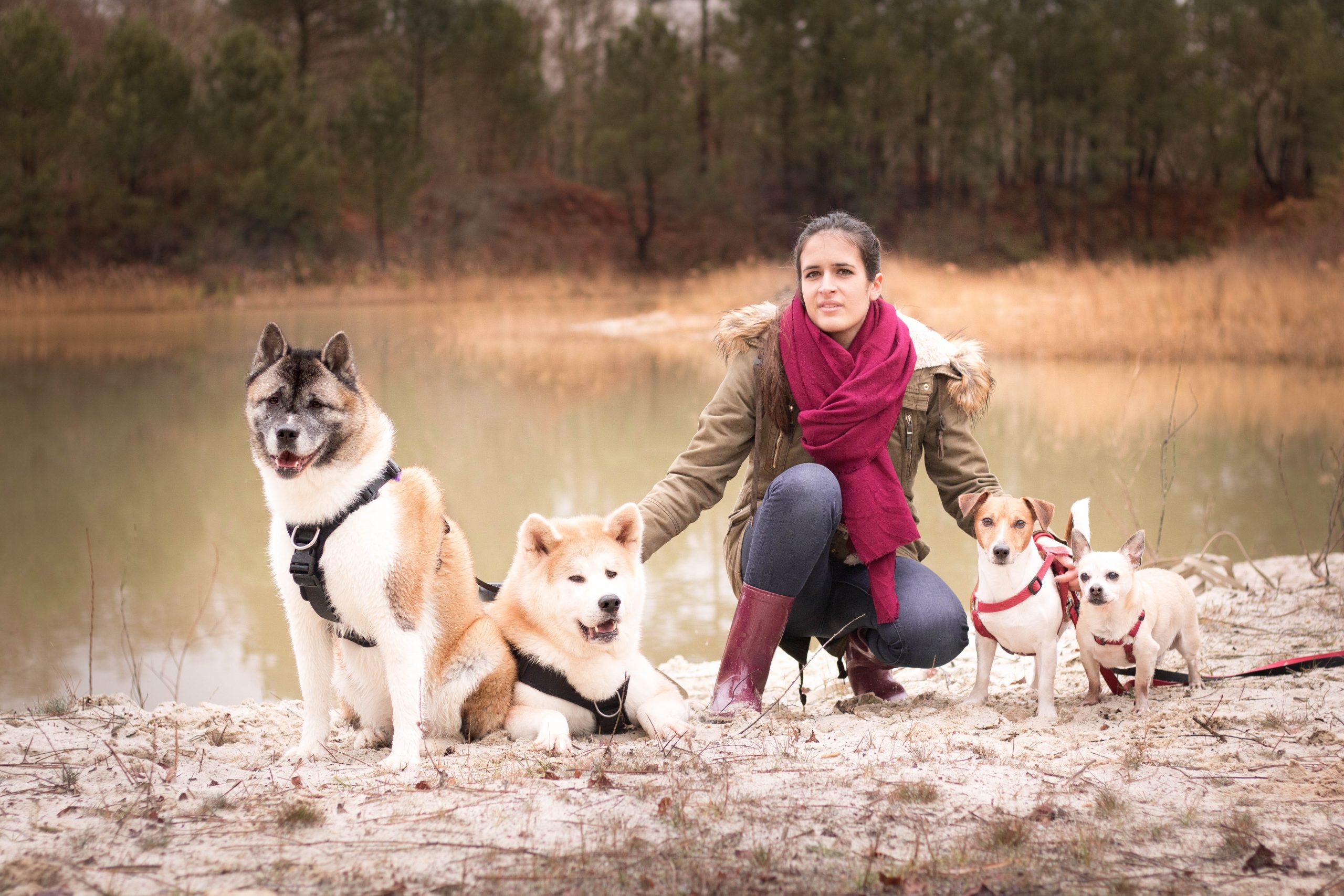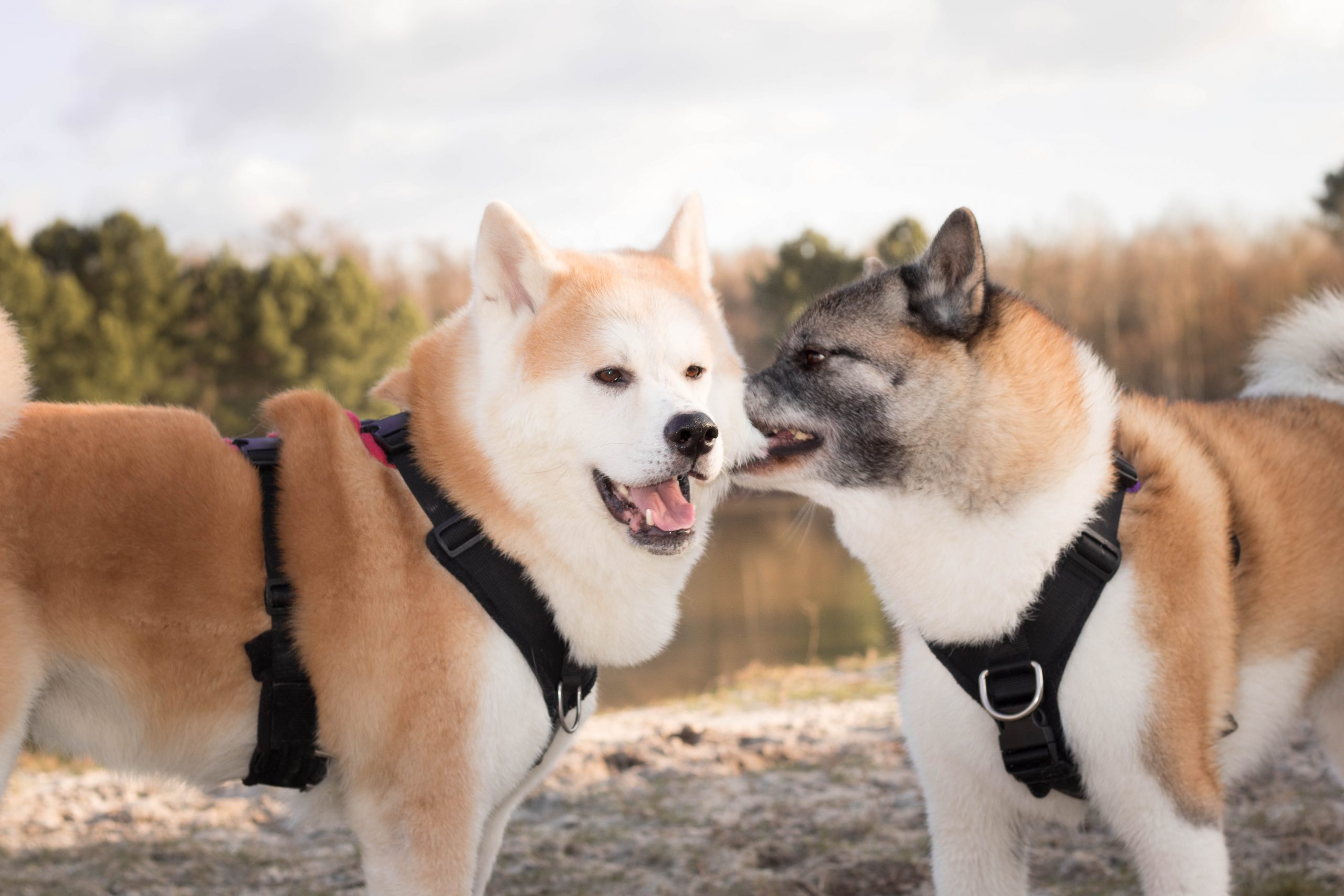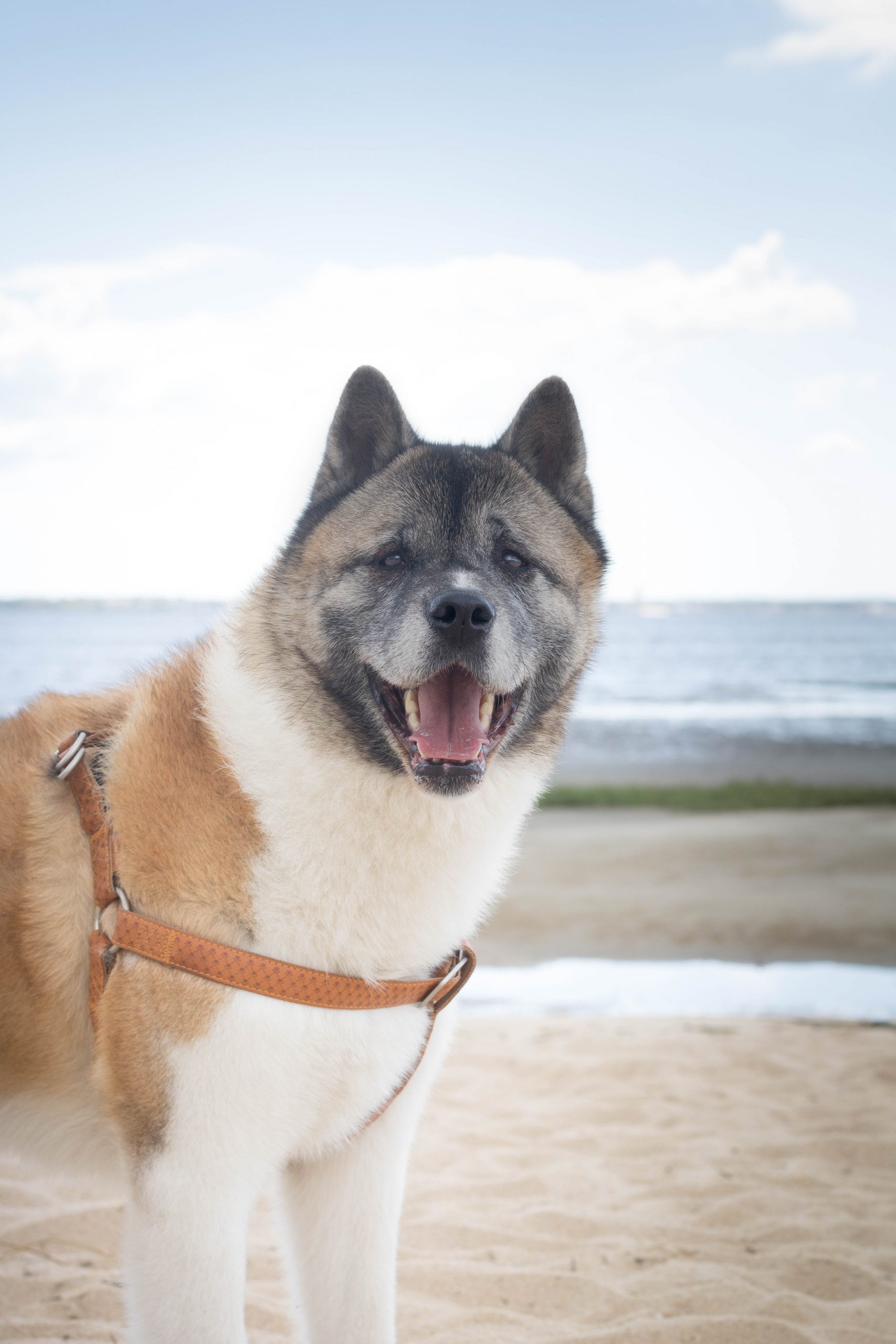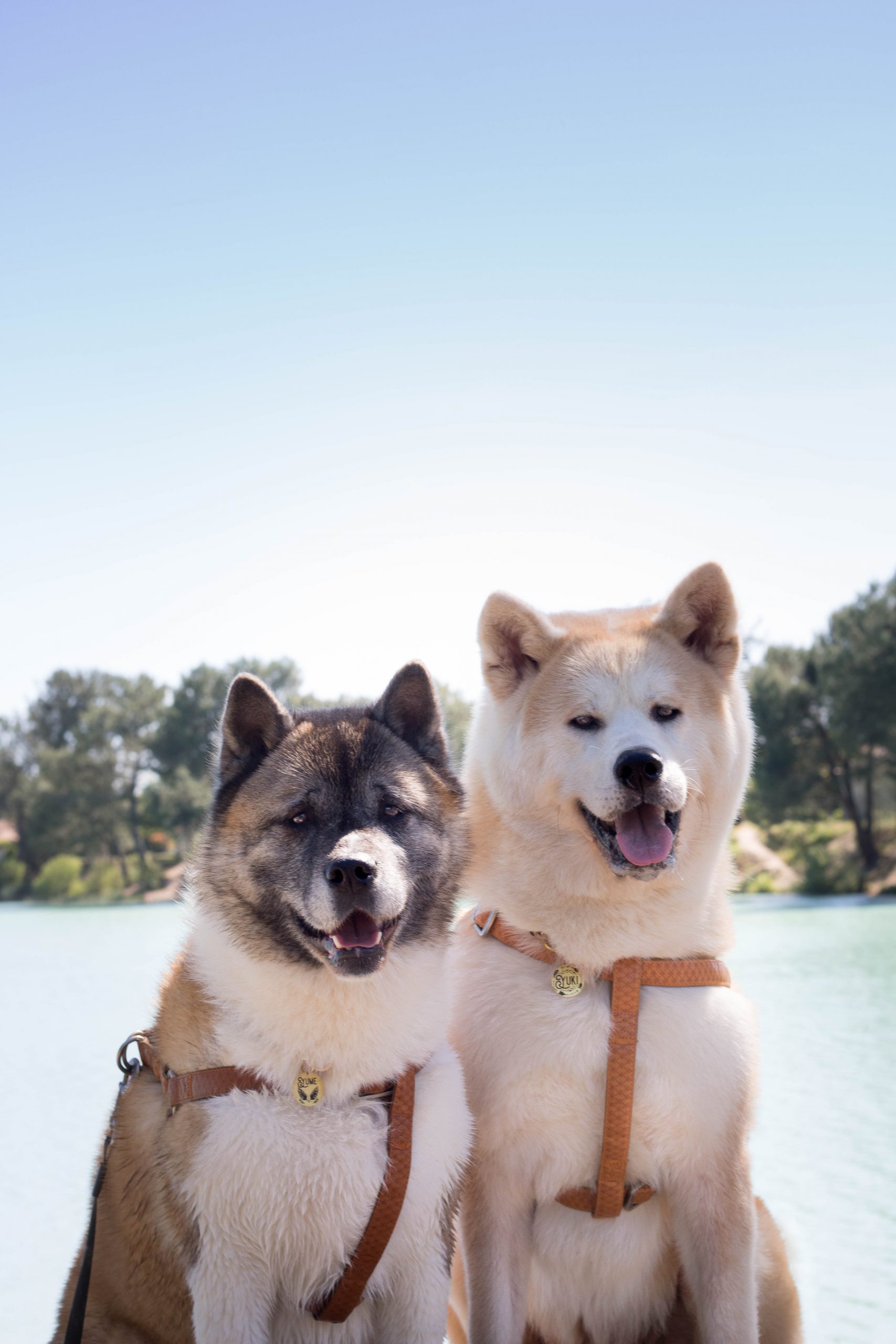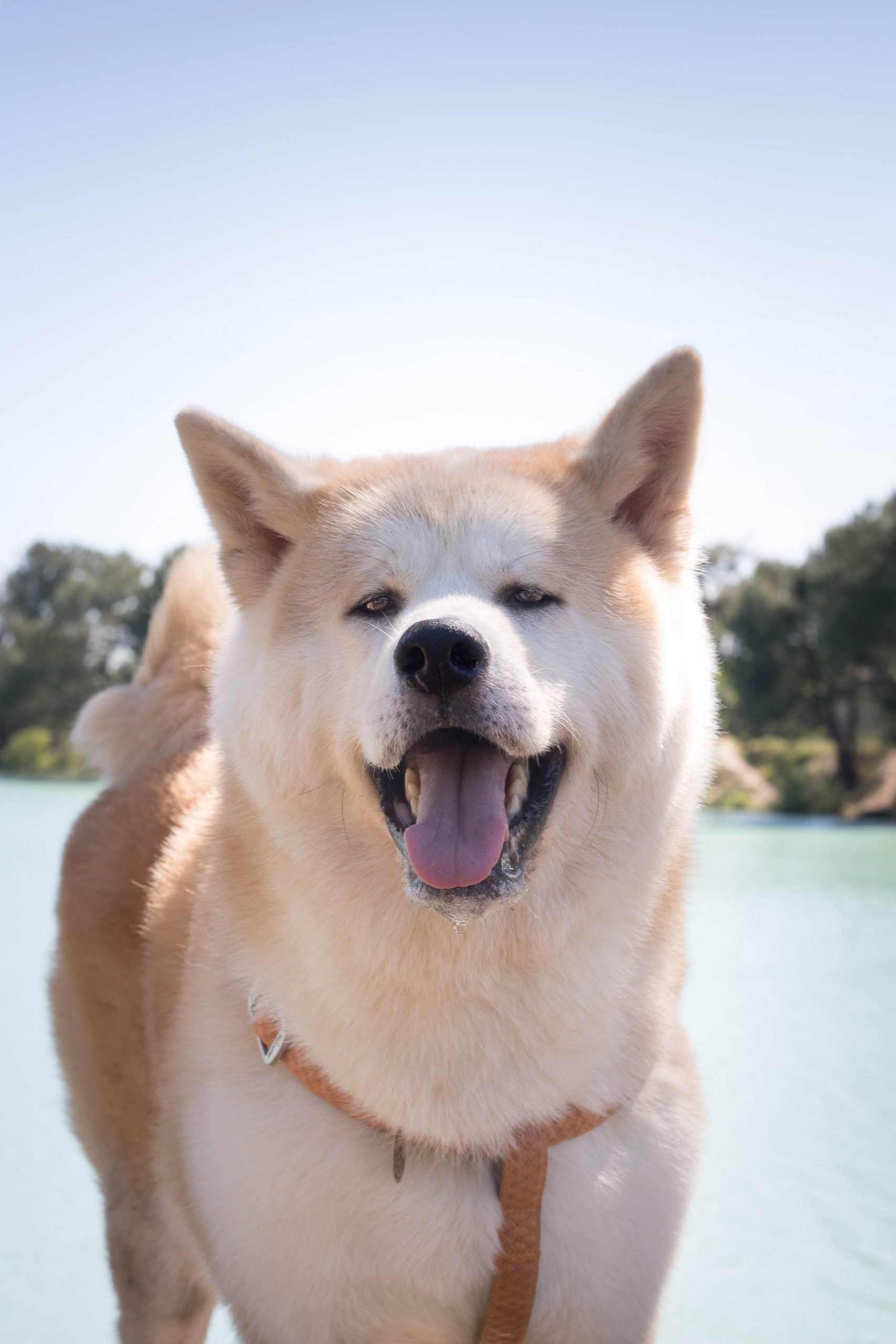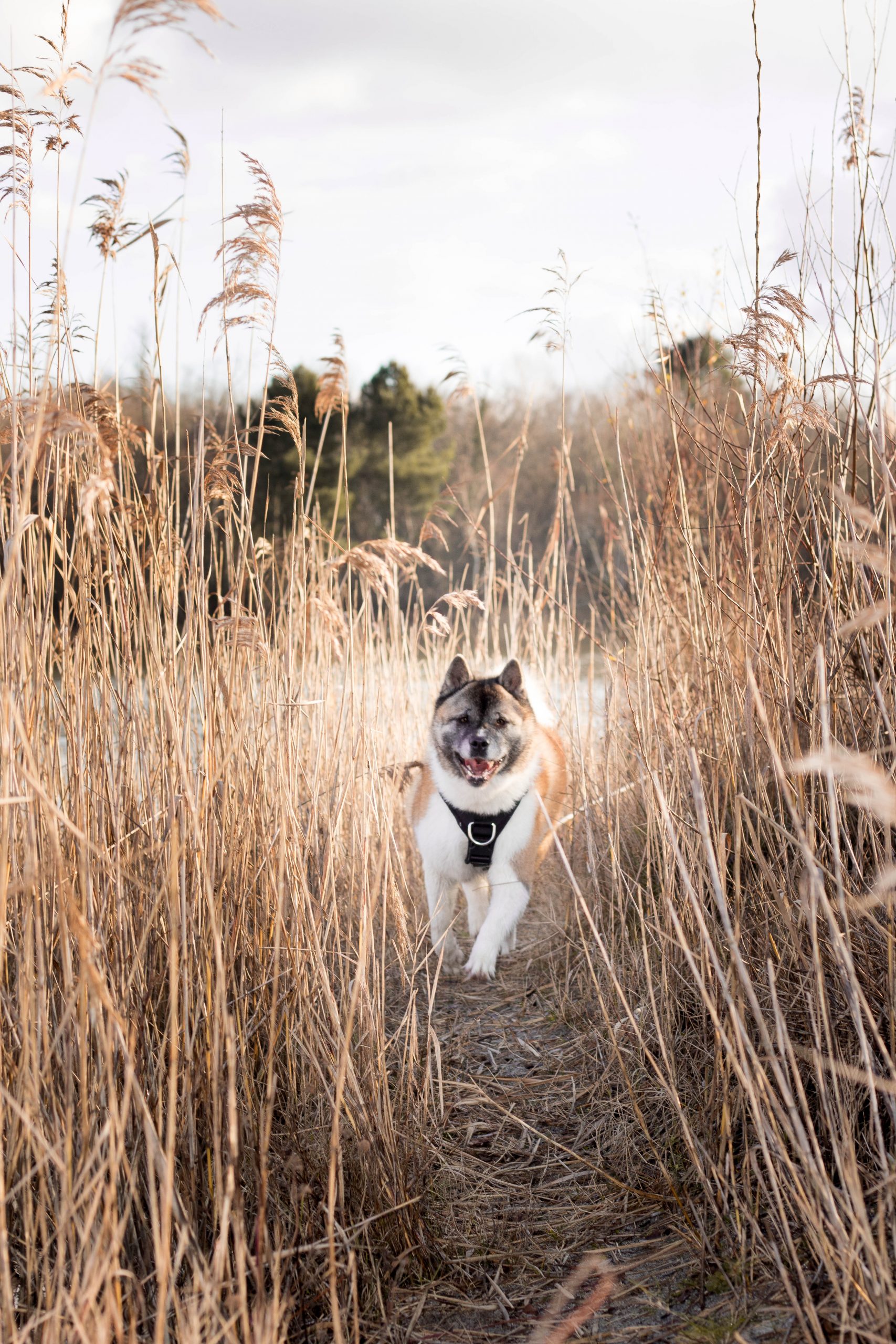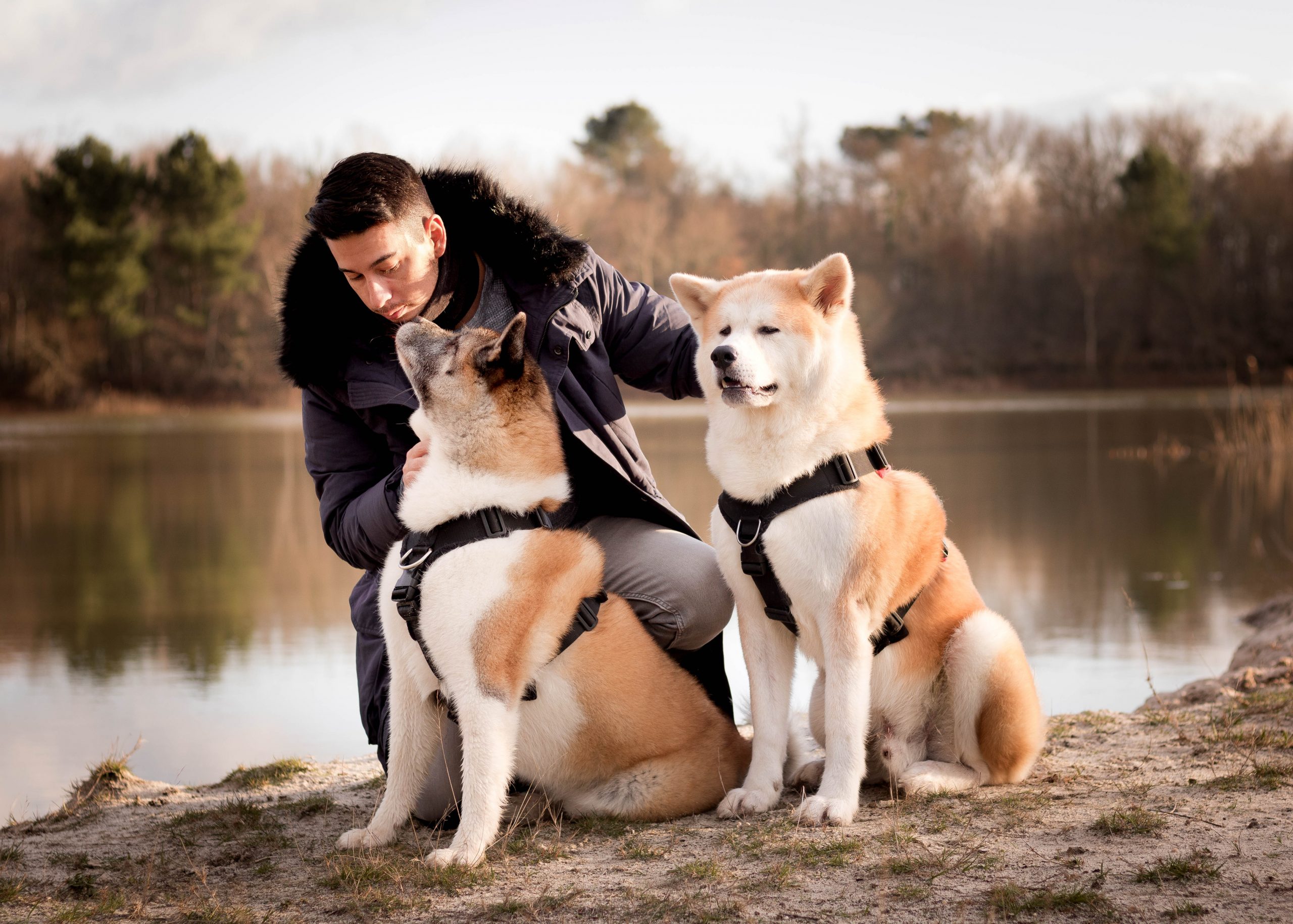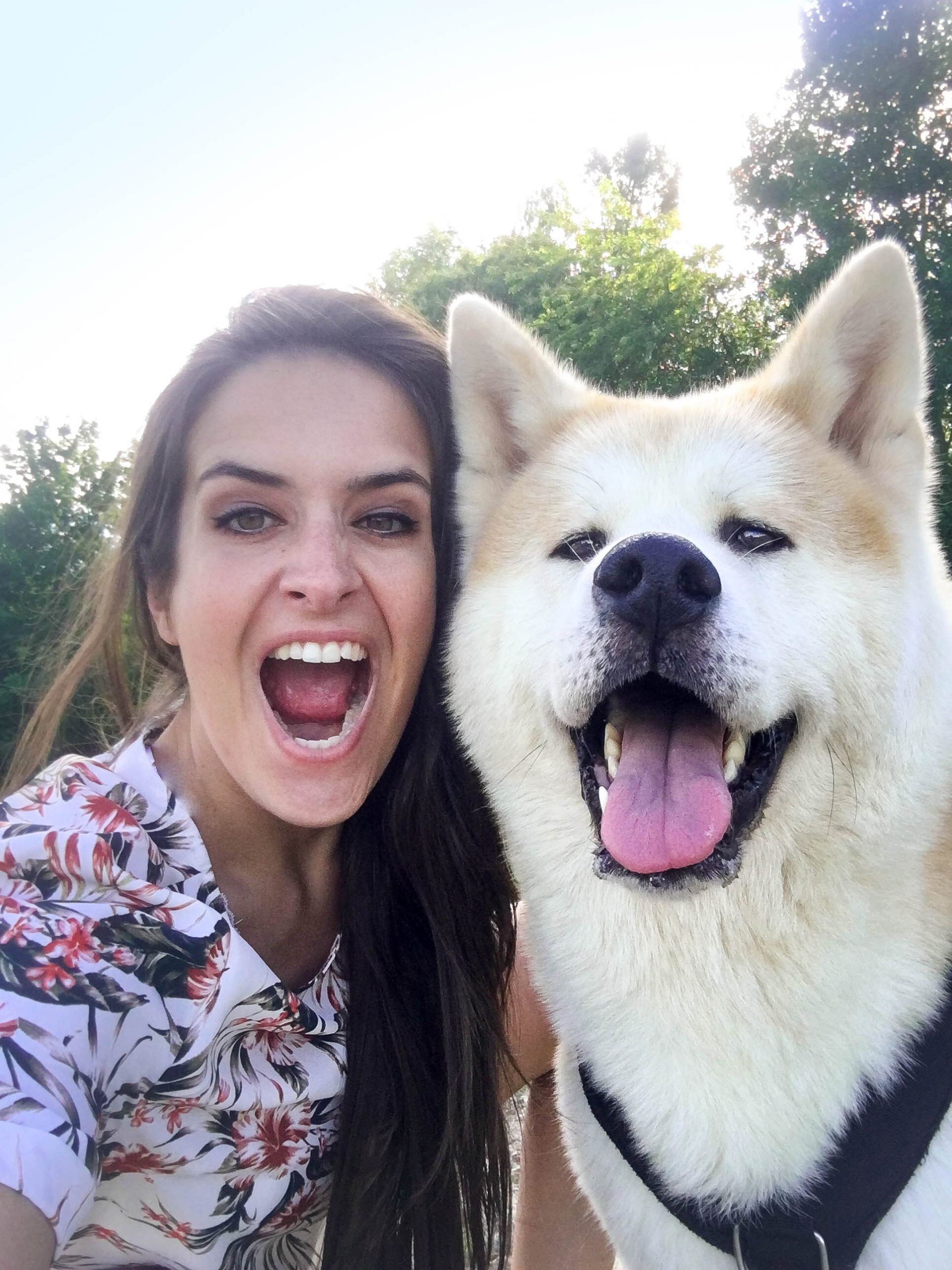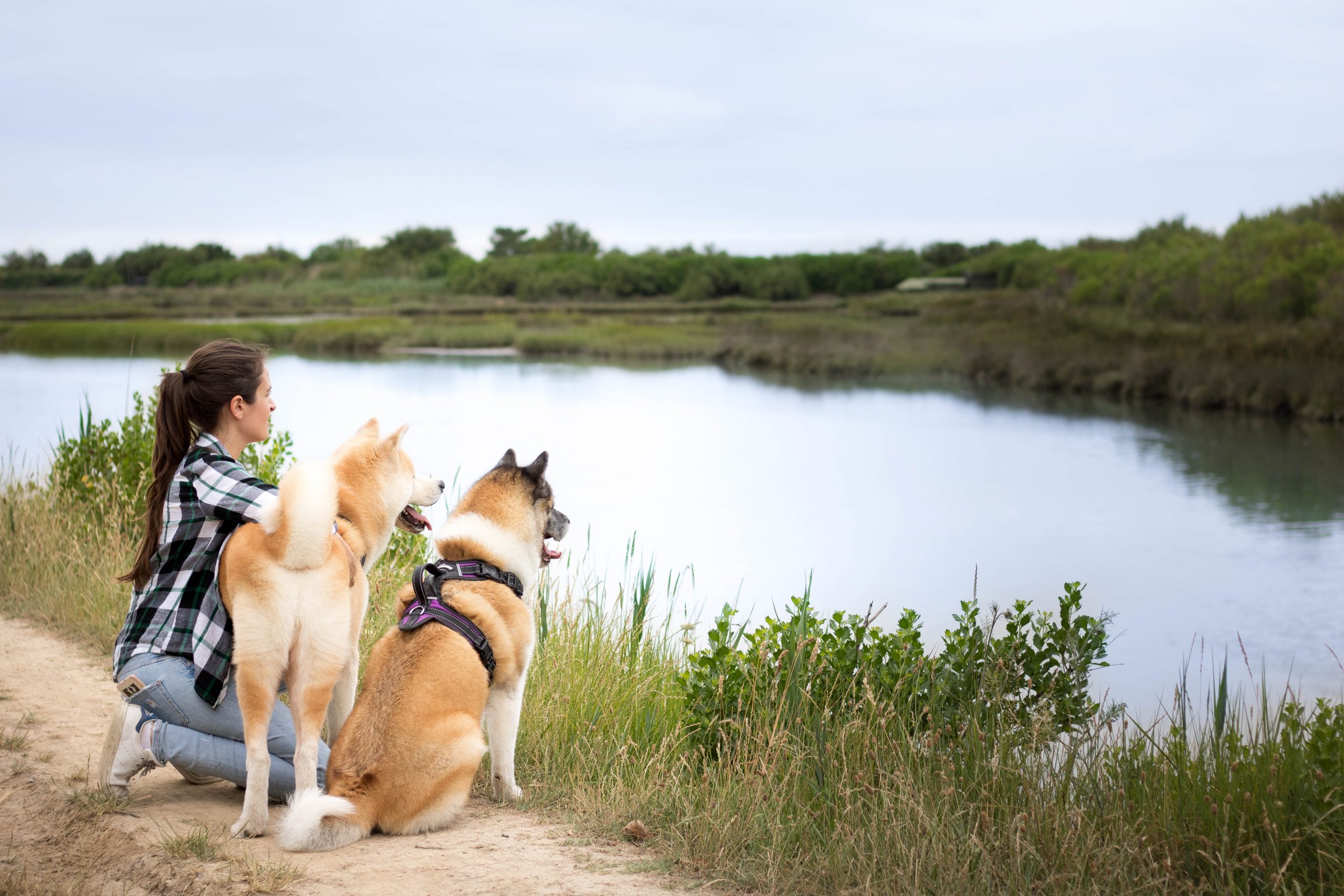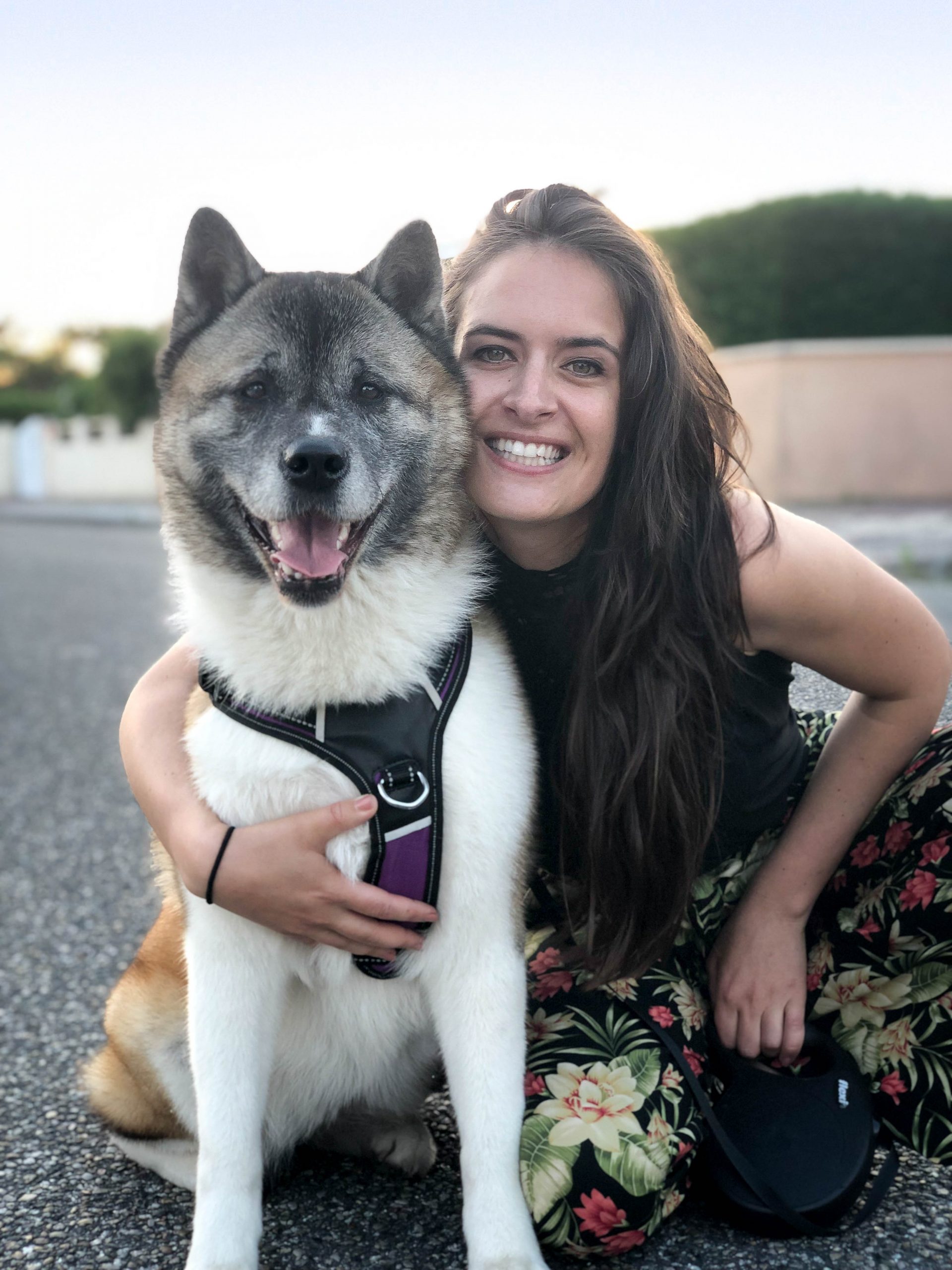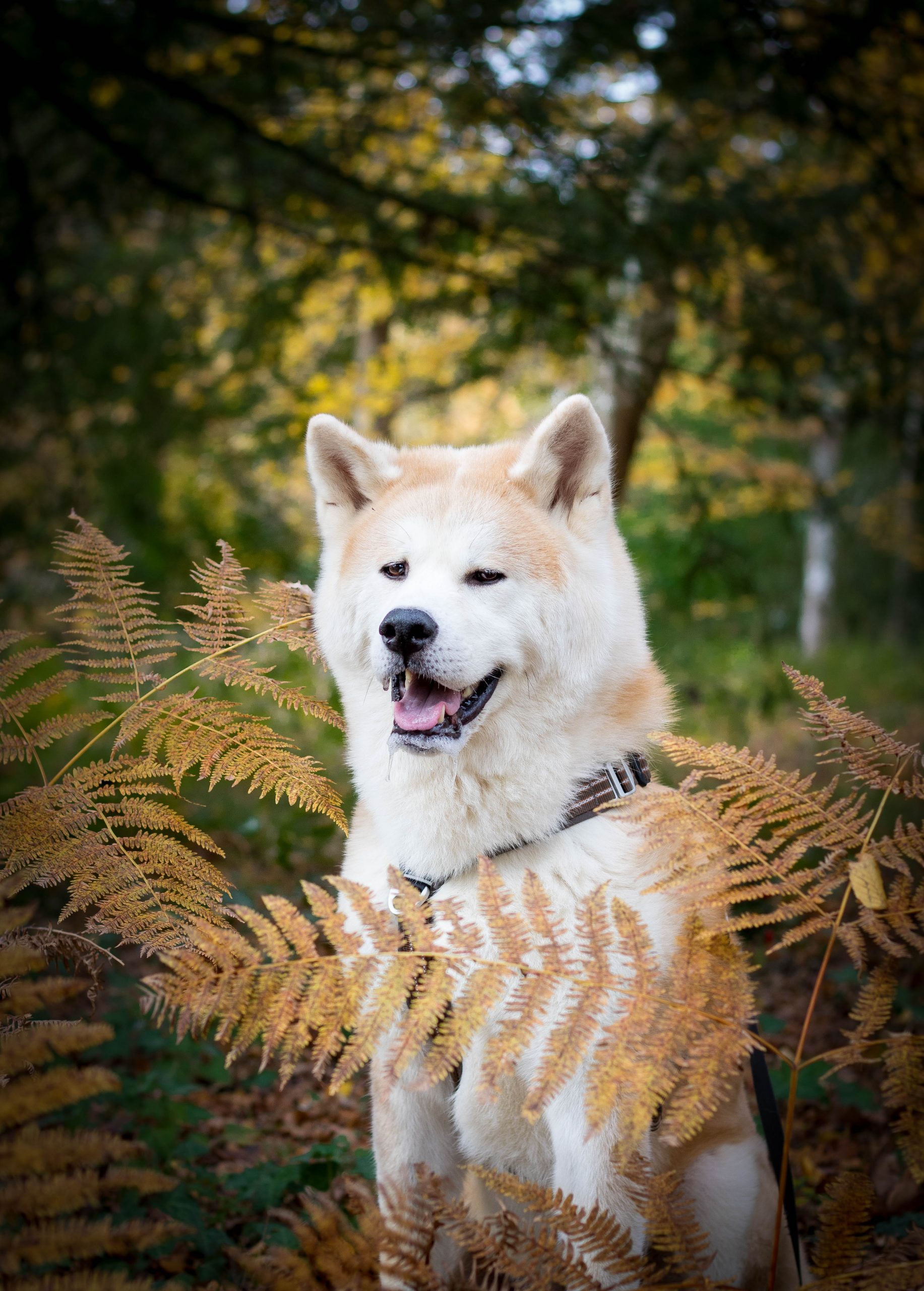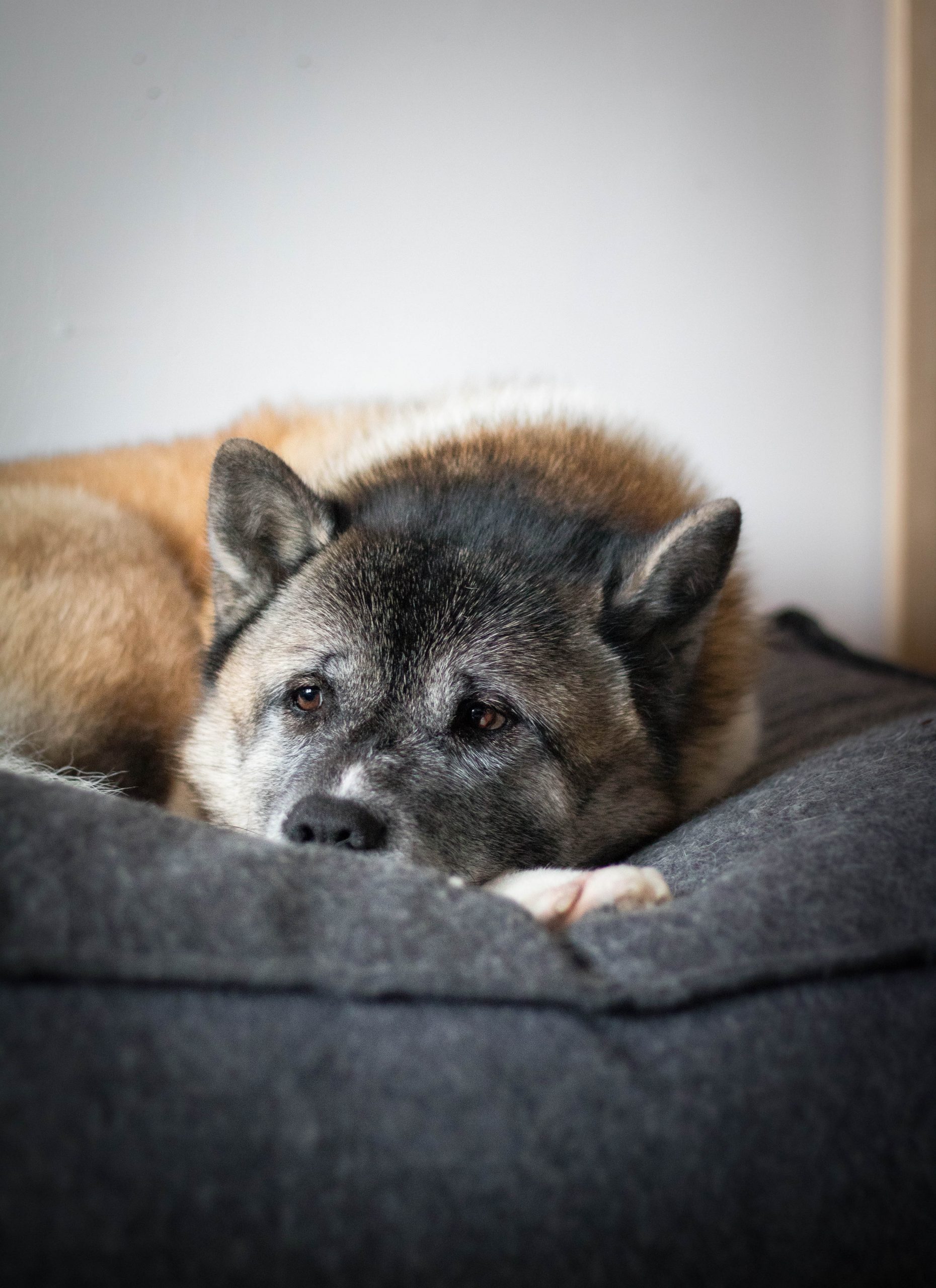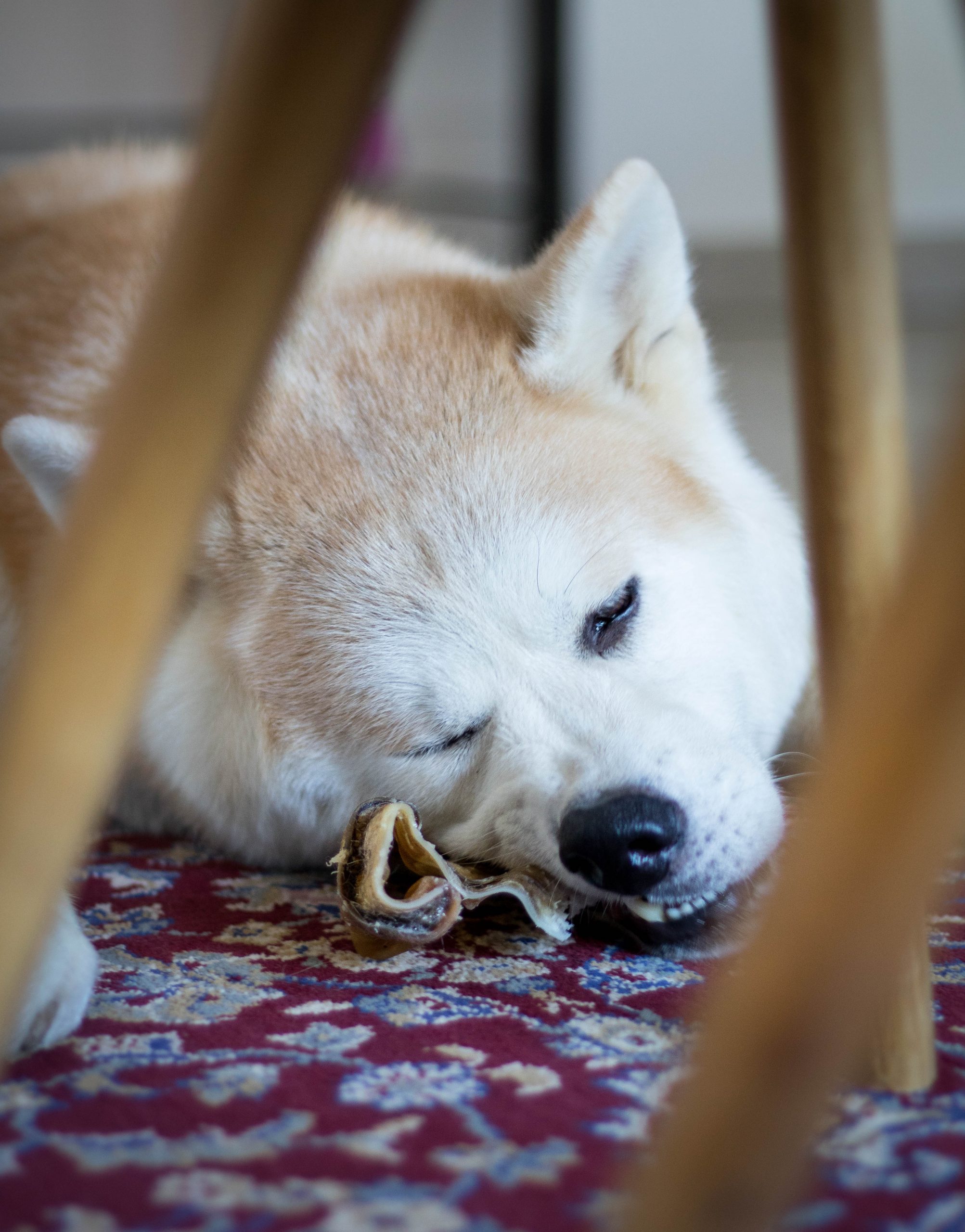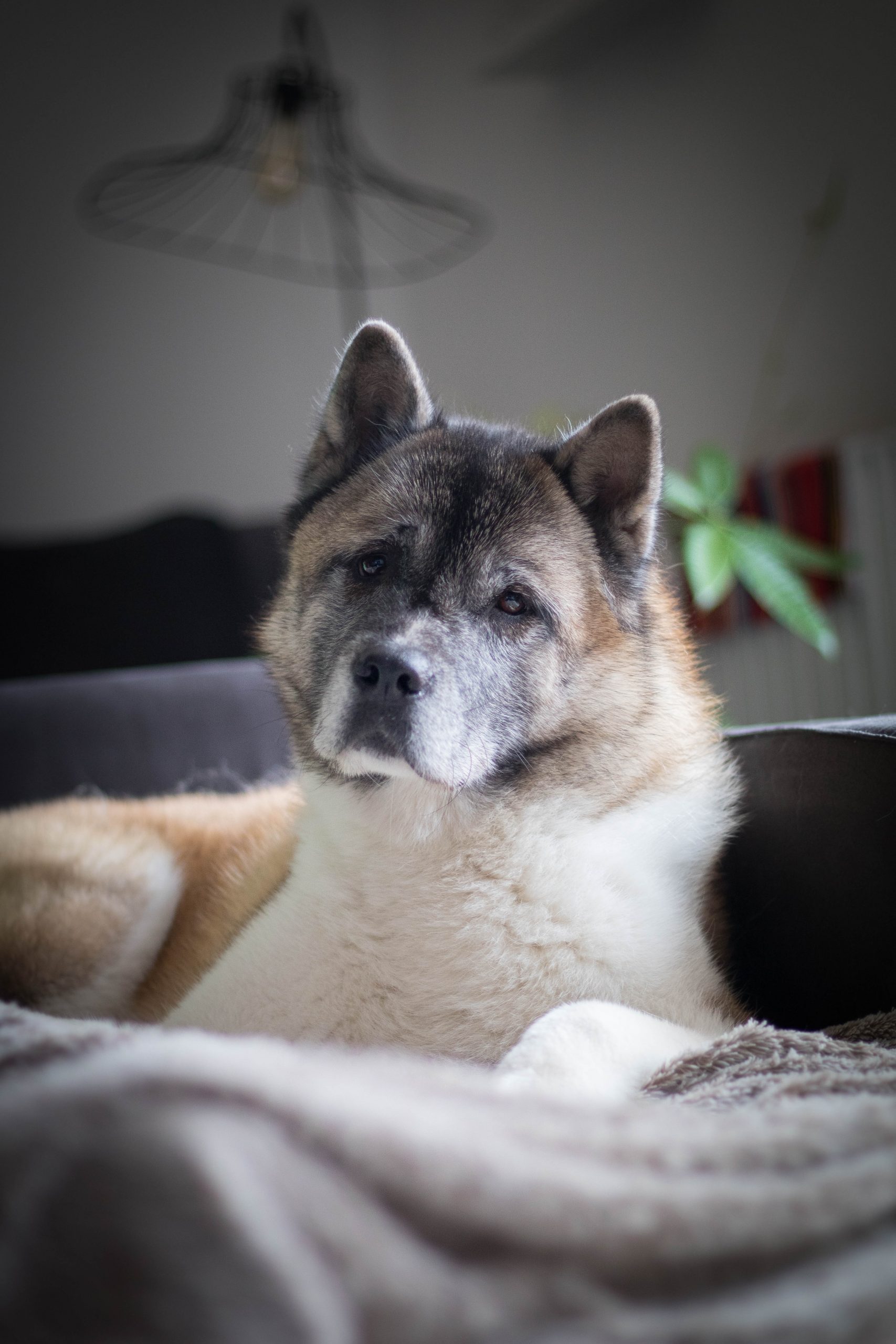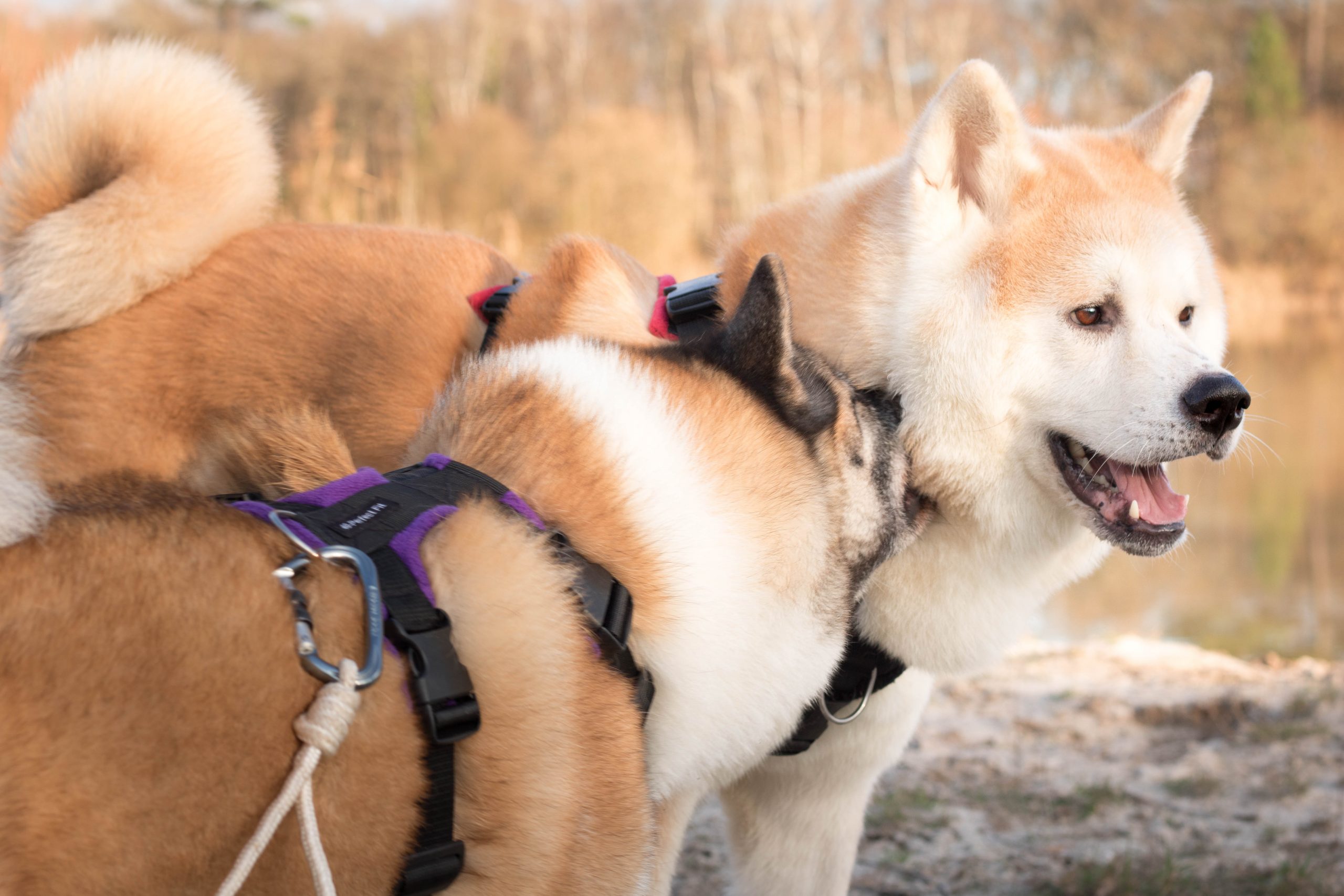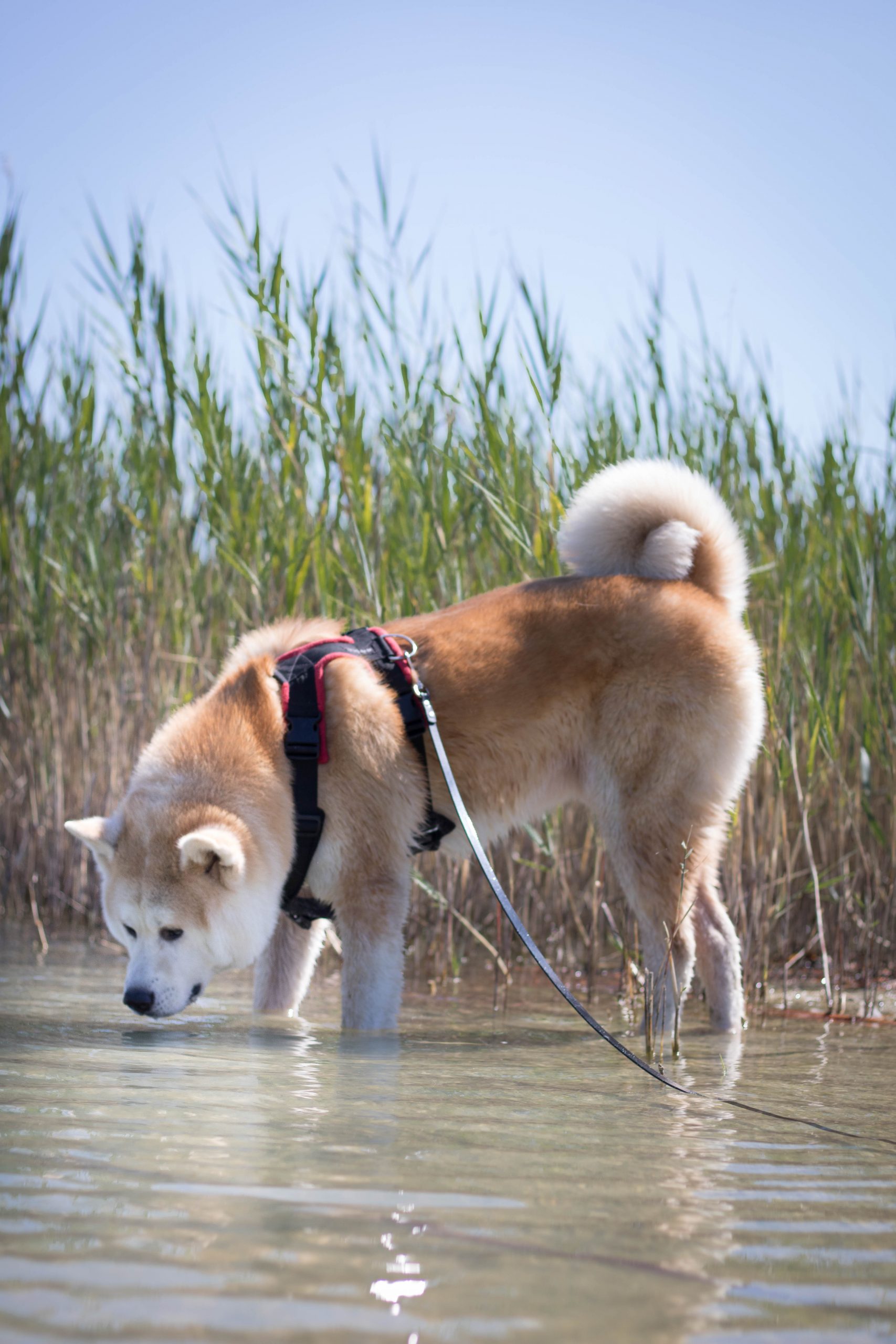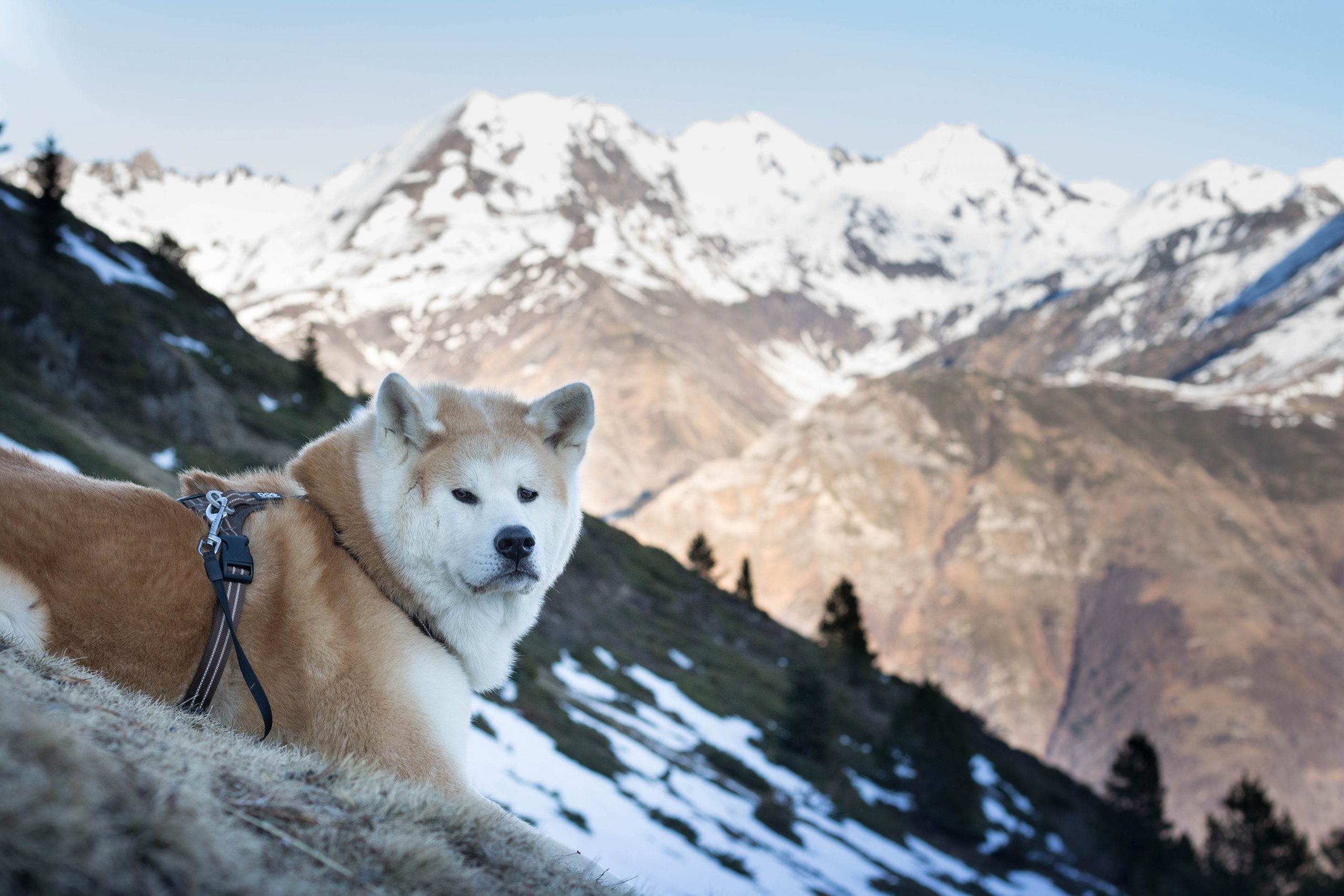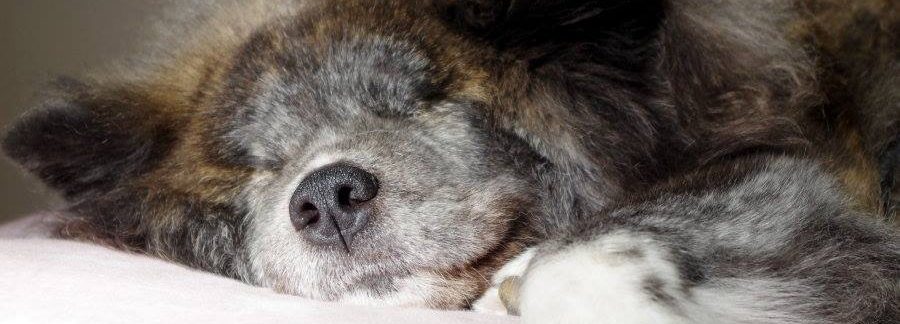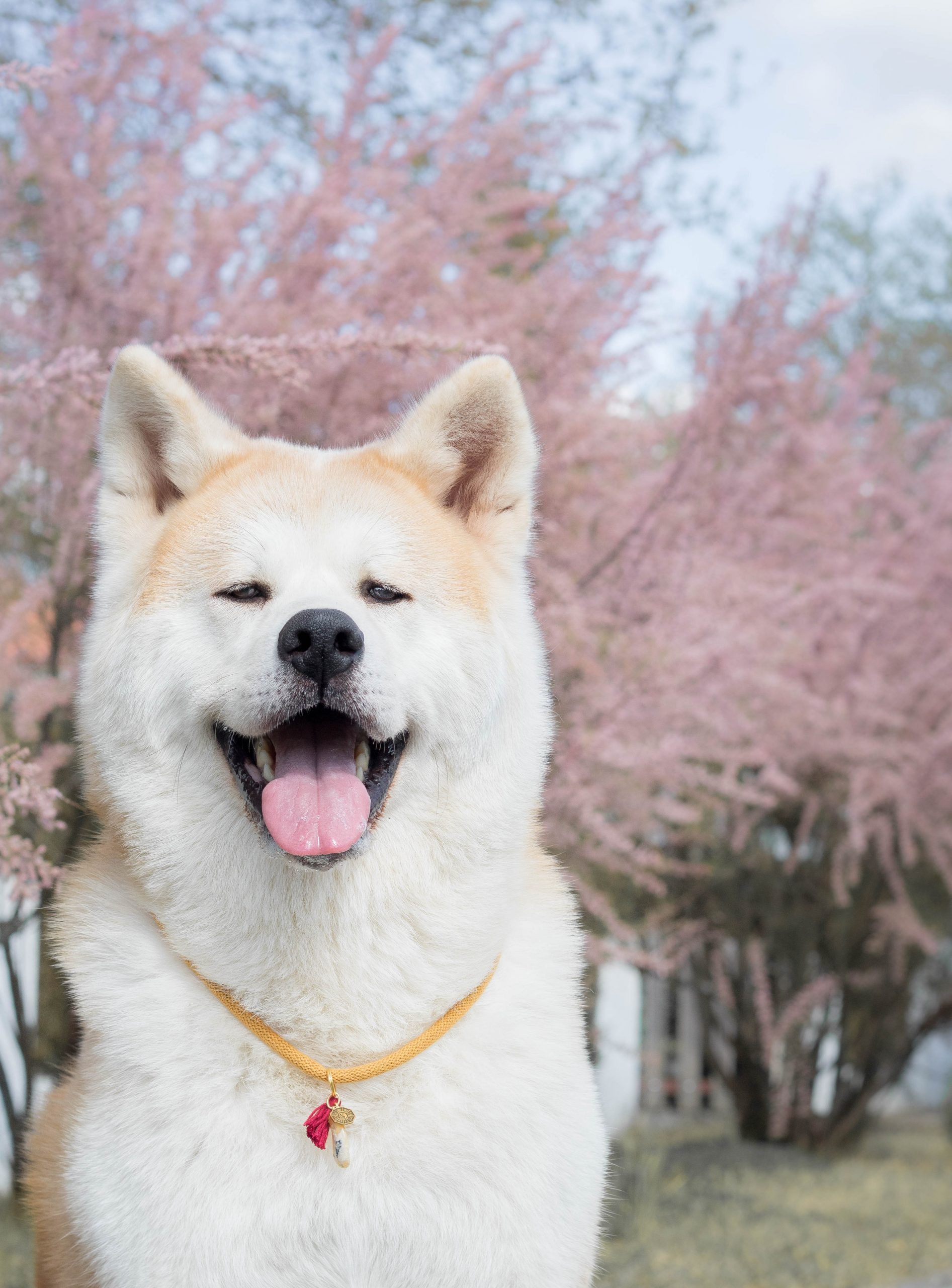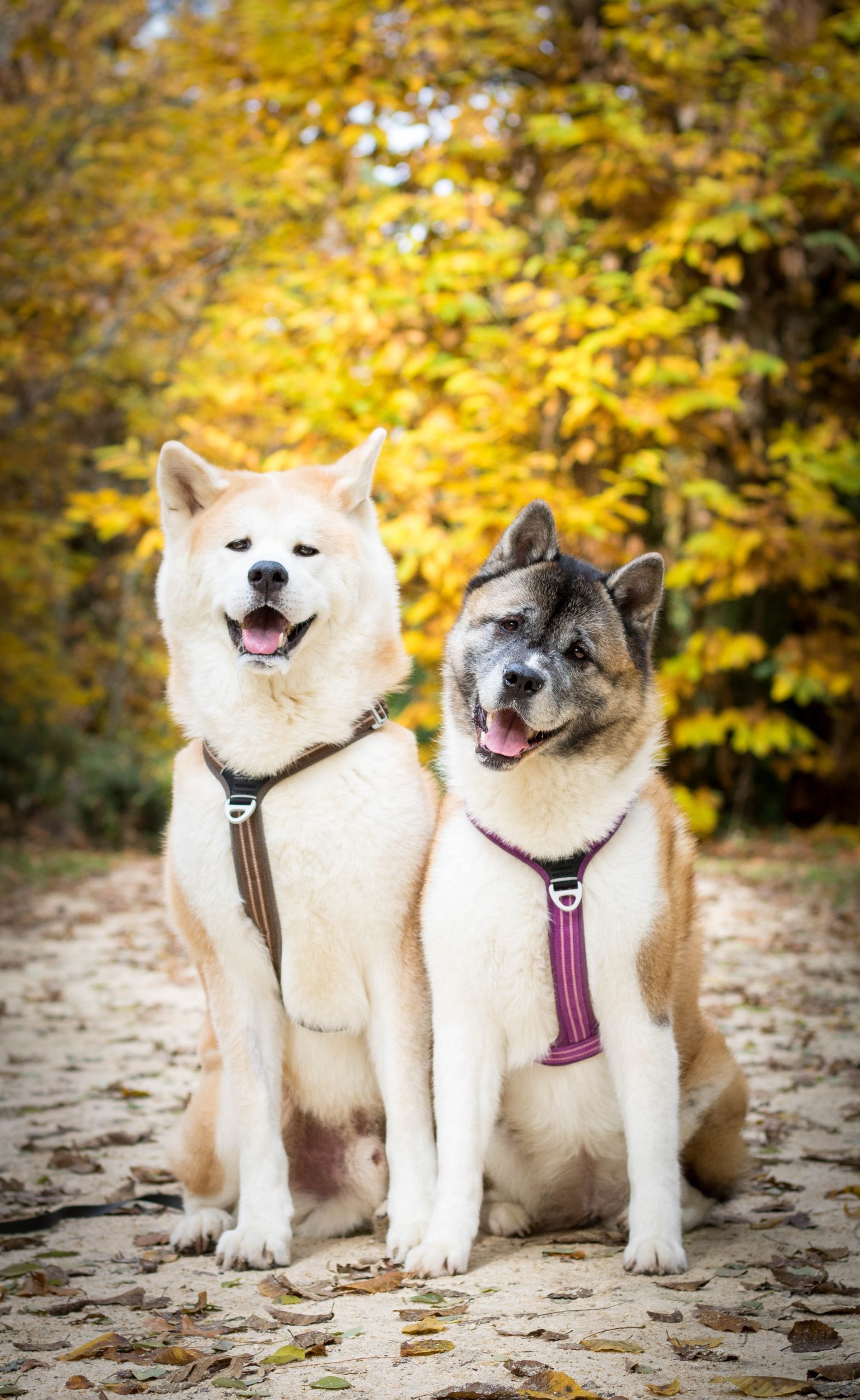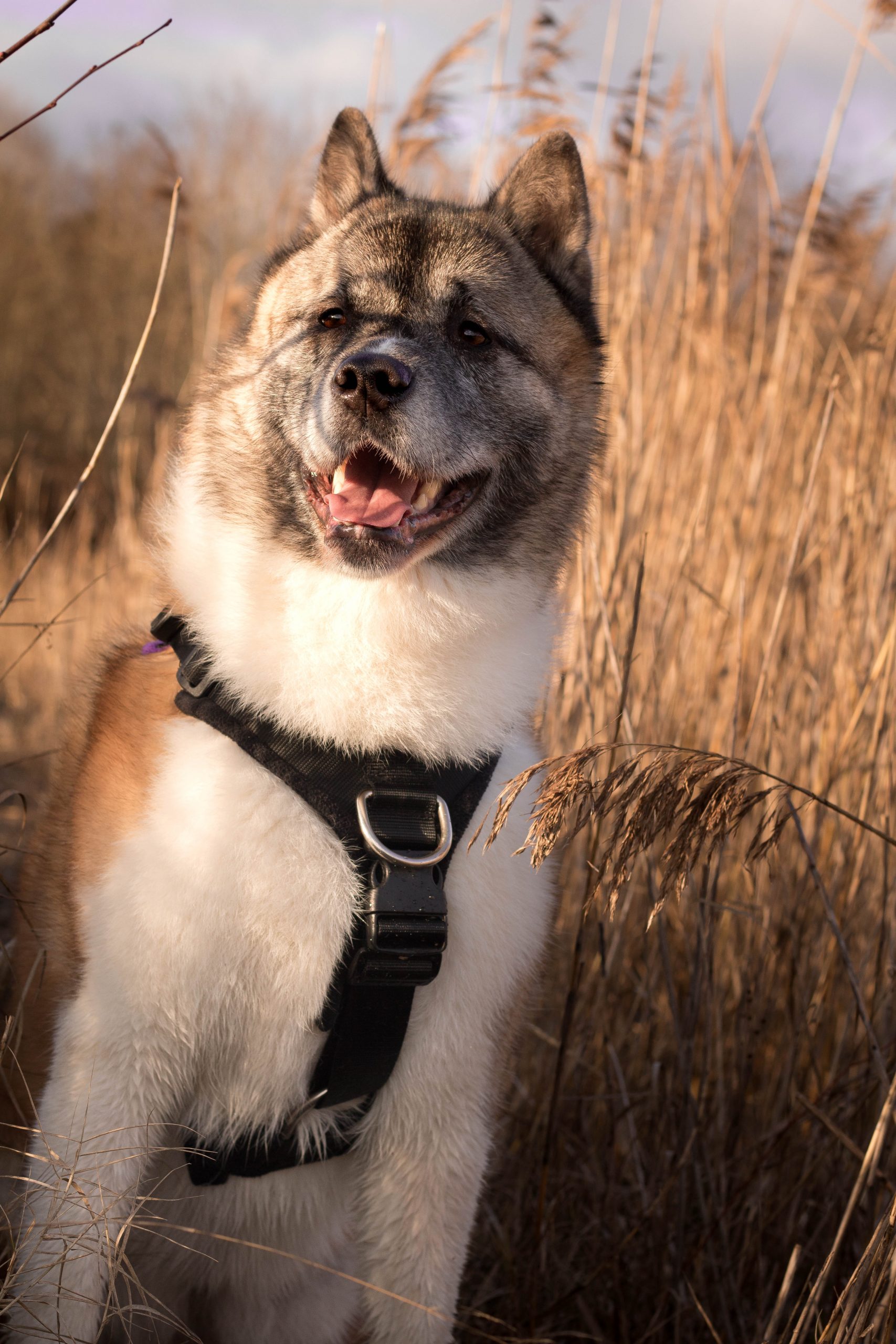THE AKITA, THE GREAT JAPANESE DOG
The Japanese Akita Inu and the American Akita. Breed presentation.Introduction
animal
Do you want to know if the faithful, handsome and heart-warming “Hatchiko” – the most famous Akita Inu in the world – really exists?
Do you want to learn about the Akita Inu and/or American Akita breed before taking the leap?
Then let me present this breed to you, based on my knowledge and experience, as myself the proud owner of this magnificent breed.
When Yuki (my male) came into my life in 2012, it was the start of an overwhelming passion for the Akita Inu breed, and later for American Akita with the arrival of Yume (my female) in 2014. I was also privileged to be a volunteer for the a dog shelter as Head of the Ile de France sector. For close to a year and a half I learnt a lot about Japanese breeds, including the Shiba Inu (their smaller cousin), the Akita Inu and the American Akita. This is when I really became aware of the importance of prevention and information-sharing, among other things.
Learning about the breed prior to embarking on this crazy and wonderful adventure is vital! This is the message I am trying to send on the many social networks I use: Youtube, Instagram, Facebook and this blog. I strive to share my passion, provide information and guidance, and point (future) Akita owners in the right direction whenever and as much as I can.
Now, let’s get straight to the heart of the matter!
I’m going to give you the main traits that you should know about the Akita Inu and American Akita breeds. Don’t hesitate to go searching for more, both on my many social network accounts and on the website Akita zen & Akita sans tabou which is a real mine of information. Take the time to gather all the information before making a decision. If you have any questions at all, please don’t hesitate to leave them in the comment section. That’s what this blog is for 😉
I will specify that I will be talking about the Akita breed in general terms. Of course, when you know what an Akita can be like, exceptions do exist; however, these ‘predispositions’/’traits’ are found in most Akita. I will also be referring to adult Akita (aged 3 years and above) in general.
AKITA AND OTHER DOGS
To an Akita, « respect » is very important, both when exchanging with humans and when communicating with other dogs.
Many owners find walking their dogs a very sensitive topic, and sometimes a difficult task, in the presence of other dogs. They will not tolerate impolite, overly direct and head-on encounters and will make themselves understood, often with a great show of strength.
Very mindful of doggy codes and how they should be approached, they will make sure that other dogs respect them.
There are many owners who are overwhelmed by this aspect, who struggle to handle their Akita (let’s not forget that these dogs were once used as fighting dogs). You can find this out for yourselves by reading the many testimonies left on Facebook groups.
« With proper training, there’s no need to worry, I’ll succeed« .
This is a statement that I have heard often over the years…
Training and socialising an Akita from a very young age is extremely important! In fact, it’s ESSENTIAL! But it will not be enough! It would be too simple and, in my opinion, a shame. It would mean that you could mould an Akita as you please. But then, they wouldn’t be such a special, and equally complex and fascinating breed. Believe me, training is not enough!
Although the early stages might seem easy, their entire training may be challenged, often around the age of one, or around two or three years old for late bloomers. Encounters and exchanges with other dogs require a HUGE amount of work on a daily basis throughout the Akita’s life. I also think it is vital that you respect your Akita’s personality, that the Akita is never forced and that their individual limits are accepted.
This is important given that, in most cases, Akita’s are very sensitive to same-sex dogs. In fact, this is the area that I have had to work on most with Yuki and with other (large) males, as he was highly reactive to them. It is now still a ‘sensitive’ issue, although to a lesser degree due to his older age (7 years now), daily work and a lot of anticipating on my part.
It is clear that when welcoming your Akita puppy, this MUST NOT hinder you from socialising your dog with other dogs. Maximise on positive and diverse encounters. Prefer the quality of exchanges to quantity to the detriment of quality.
Should changes occur later down the road, you can work on it when the time comes by adapting 😉
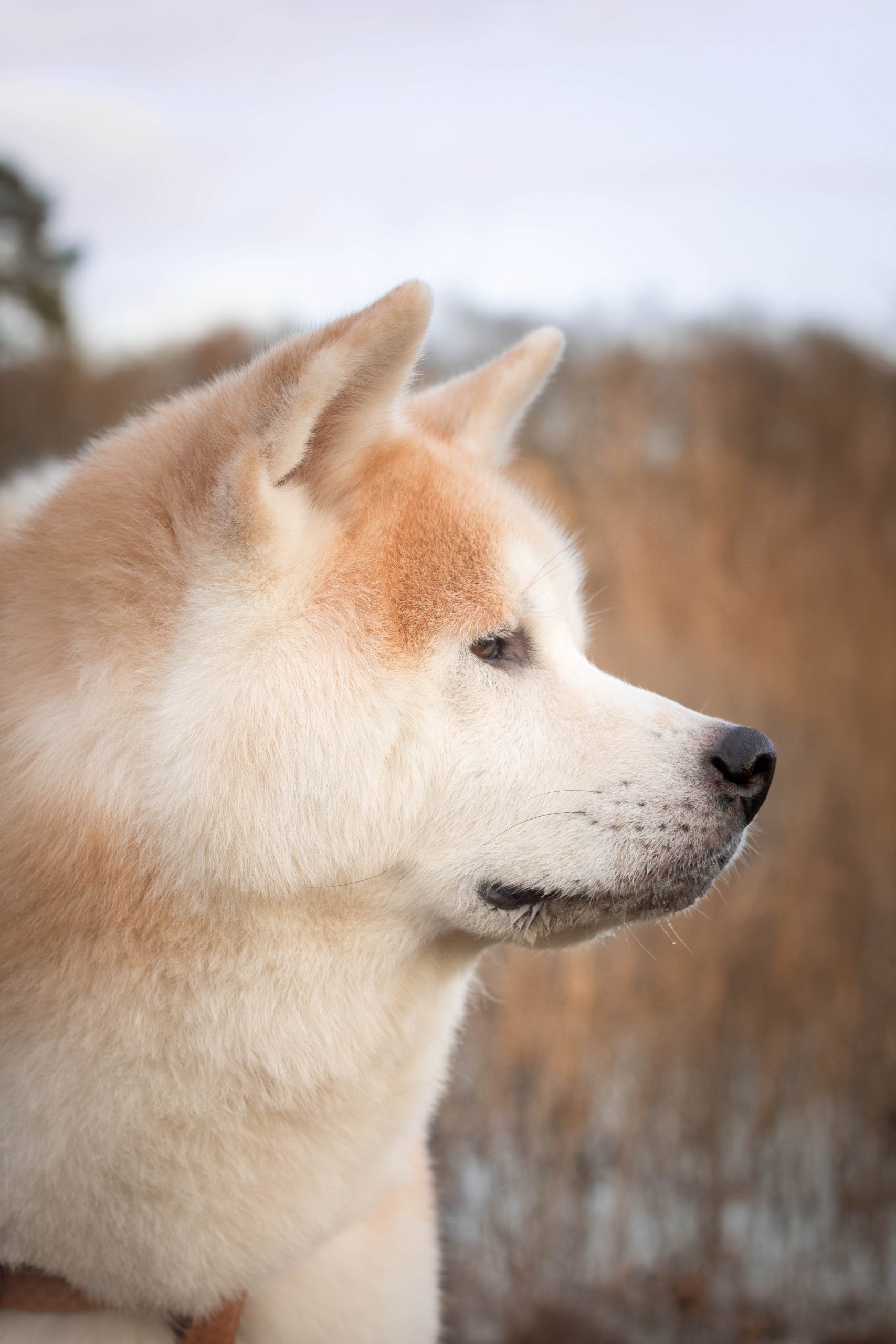
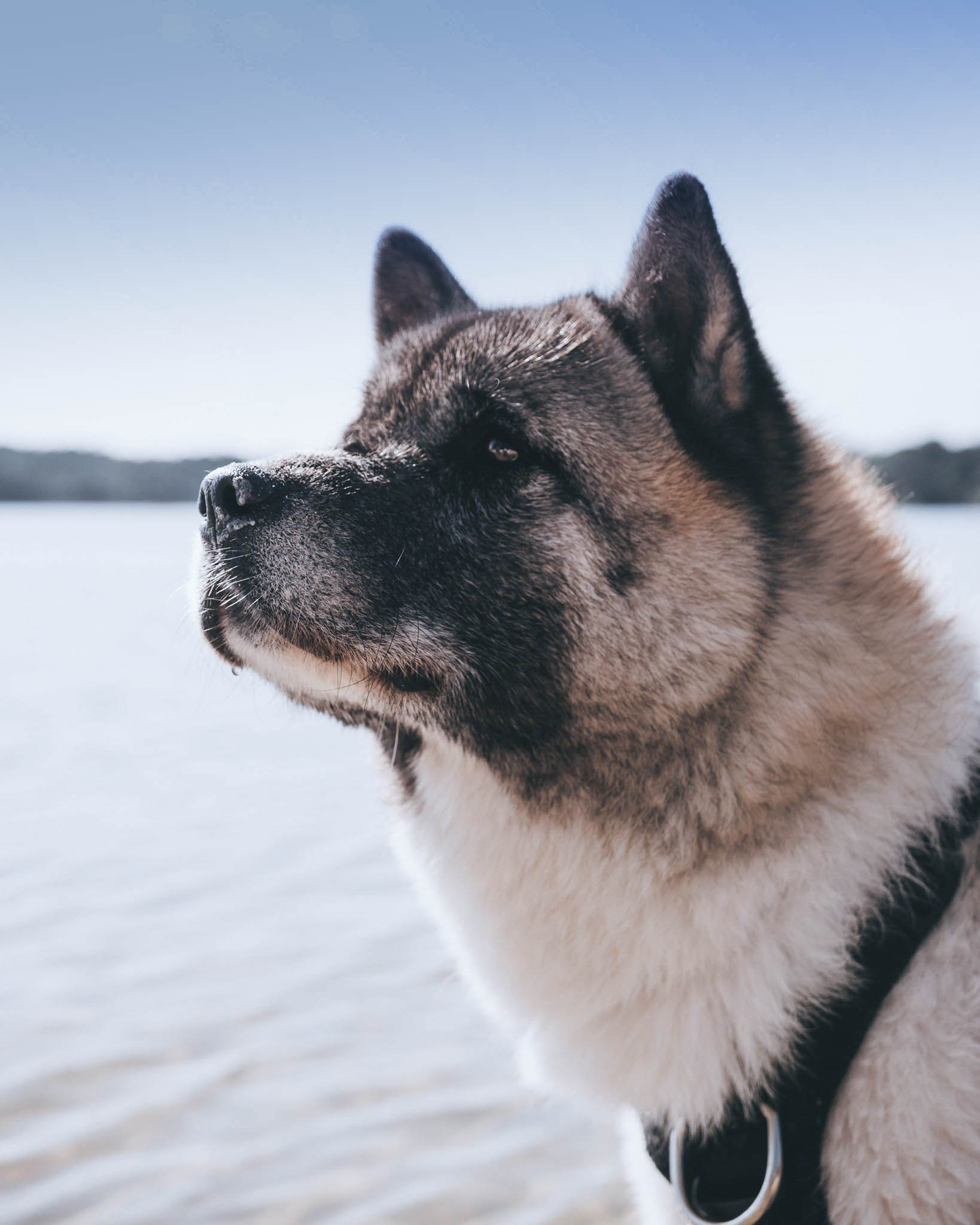
SO, CAN AN AKITA LIVE WITH ANOTHER DOG ?
Acquiring an Akita with another same-sex dog (whether an Akita or not) under the same roof is NEVER RECOMMENDED, there is far too much risk involved in the two living together.
It is important to understand that daily encounters when out on walks (on neutral ground) are completely different from living together under the same roof with all of the risks that this entails.
For this reason, as I already owned a male Akita, I naturally chose a female Akita. However, even when taking this precaution, there is no guarantee that their cohabitation will go smoothly! They are dogs – animals – and Akita don’t mess around when they decide to go…
The topic of same-sex households is an important one because it is unfortunately the reason for far too many cases of abandonment. Know that NO good breeder will entrust you with an Akita of the same sex as a dog you already own. They must enquire as to whether you already own a dog and guide you based on this information. A good breeder will also inform you of their reactivity to other dogs. Know that this is a general stance (adopted by breeders, the Akita Home organisation, Akita owners) that is taken for good reason.
Akita and other dogs’ is the first topic I have chosen to address because, in my view, it is the topic that comes up most often in testimonials (in terms of difficulties encountered, work required, reasons for abandonment, etc.).
This aspect requires a HUGE amount of work on a daily basis, a lot of time, energy and knowledge on dogs in general and demands that owners put their own practices into question. You must be aware of this when choosing an Akita.
You will often be advised to seek guidance and assistance from a good dog trainer if you feel it necessary.
CAN AN AKITA LIVE WITH CATS ?
On this topic, I will differentiate between the Akita Inu and the American Akita.
In general, it should be known that Akita are dogs with a high prey drive. It is therefore vital that owners stay vigilant and take all necessary precautions. It is often ‘easier’ to add an Akita puppy to a home where a cat is already present rather than the other way round. Of course, it all also depends on the cat. Every situation is different.
However, there are far more examples of pleasant cohabitation between Akita Inu and cats than between American Akita and cats. The American Akita/cat combination is rarer and often involves more risk, most likely due to a stronger prey drive in the American Akita.
Unfortunately, there are too many cases in which such combinations have had negative outcomes, and sometimes even resulted in serious accidents. Of course, some beautiful friendships do exist, but they are much rarer among American Akita than Akita Inu.
Beware! Choosing an Akita Inu does not guarantee a good relationship; However, I find that they are better suited to such a cohabitation. It is often said that the Akita Inu is a “cat-like” dog 😉
AKITA AND RECALL
It is important to know that, after a certain age, it is often difficult to walk an Akita off-lead. This is due to their sensitivity to other dogs, as I mentioned before, but also due to their very high prey drive. If an Akita decides to follow a lead, it will go, and will only return once their instinct has been satisfied (with the hope that there aren’t any accidents along the way). My American Akita is a big hunter, while Yuki is always in a world of his own.
During a walk, an Akita can be very responsive and attentive to the owner. But, in a split second, it can also decide otherwise and retreat into its own little bubble… as a result, recall is a hit and miss. This is why we often advise keeping an Akita on a long line at the very least, which is a perfect compromise. Long lines allow the dog to have a certain amount of freedom whilst retaining the ability to act when necessary as there is no risk zero.
This should NEVER prevent owners from working on recall from a young age. On the contrary, make the most of your Akita’s puppy stage to “work on it” PROPERLY. Of course, when working on recall, prefer secure and calm places that encourage your Akita to learn this skill before gradually increasing the level of difficulty whilst still taking precautions. Be mindful of your surroundings and be sure to always respect them 😉
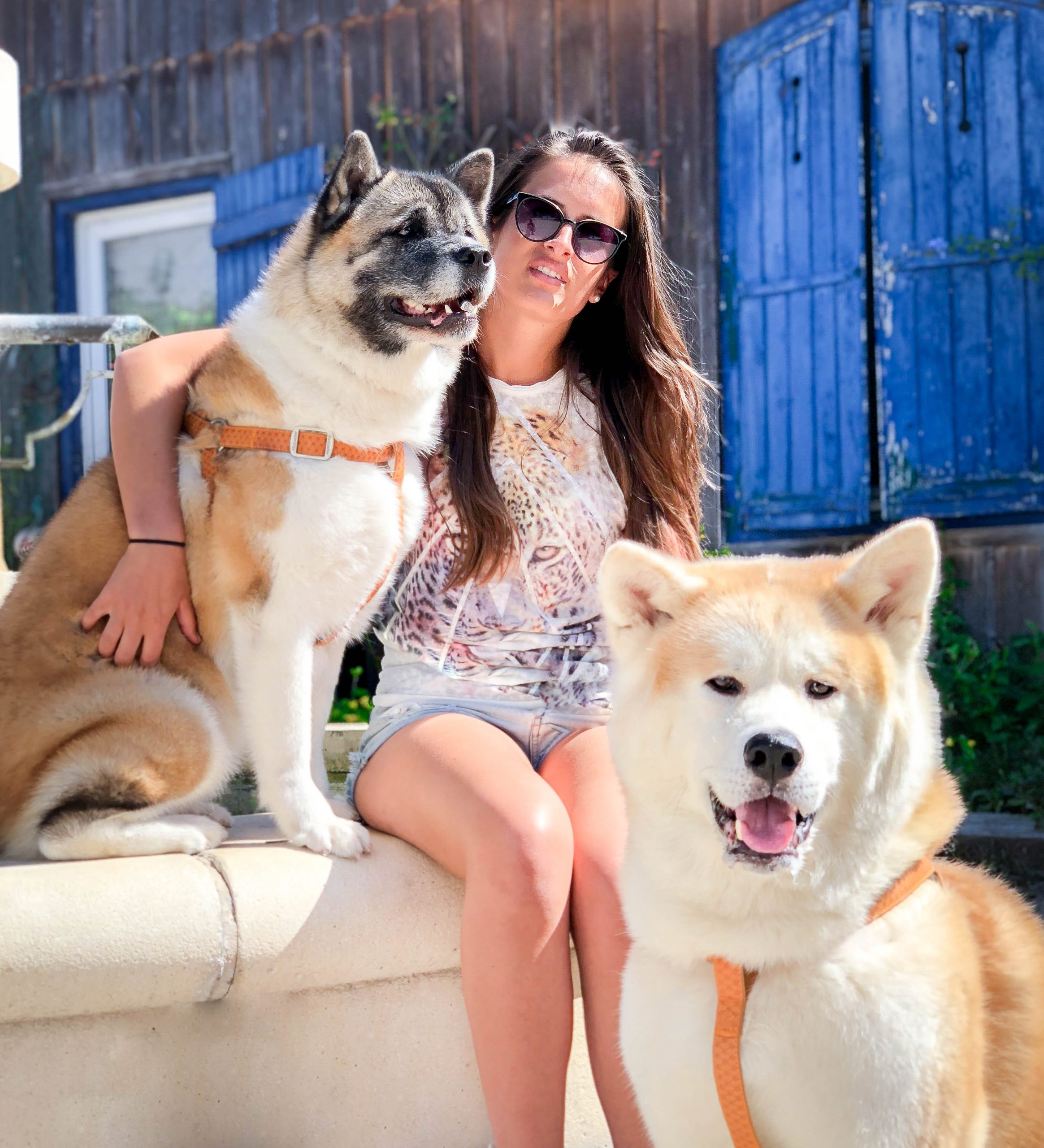
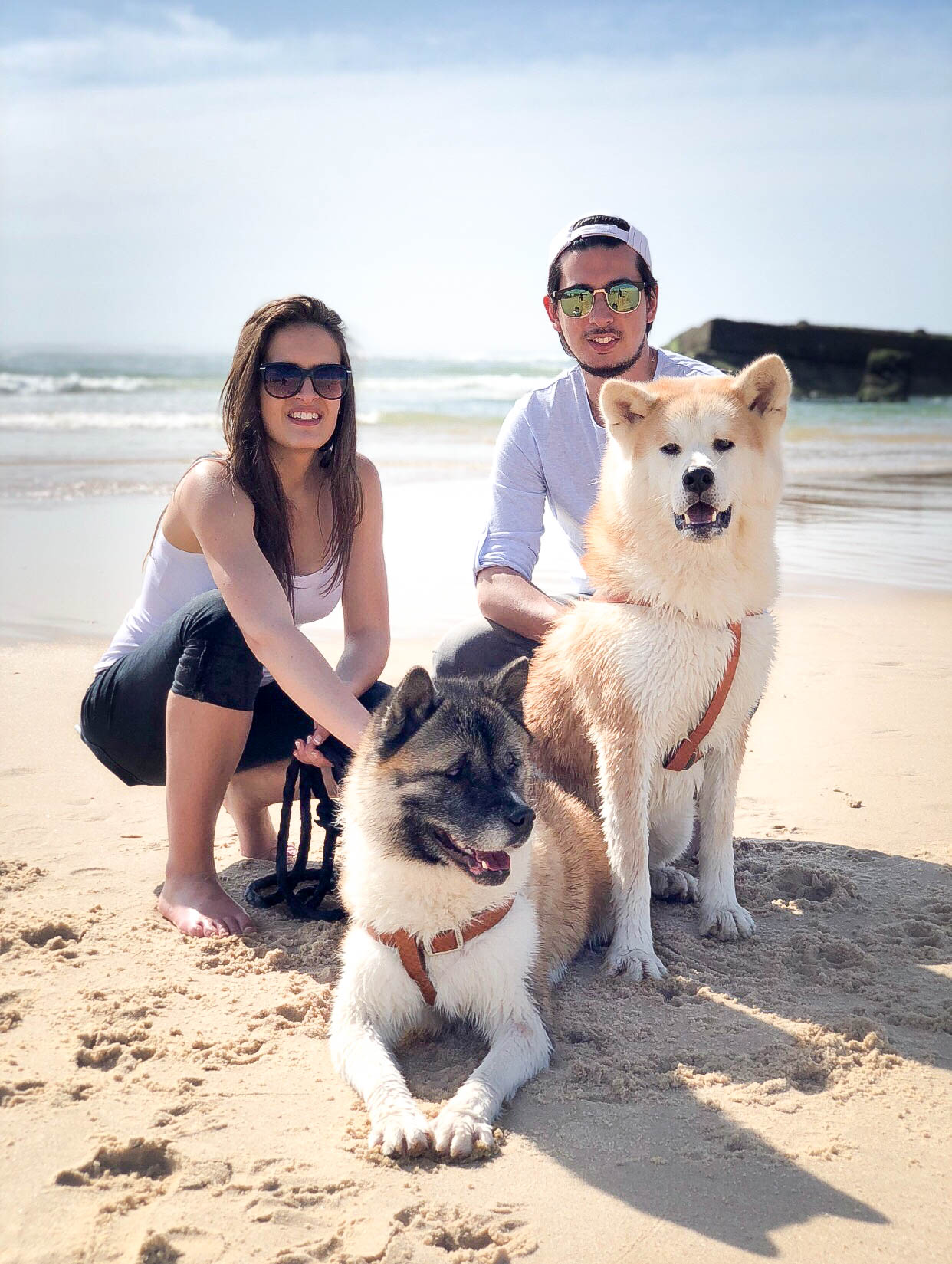

AKITA AND THEIR FAMILY
Akita are very close to their family. Yet, they can also be very independent, preferring physical distance while keeping an eye on their family.
Akita are not as demonstrative as one would expect from a dog, and with them things are often much more subtle.
My Akita have taught me to appreciate this subtlety, to enjoy their small shows of affection, sometimes just a look is enough. They have also taught me to respect their independence, their desire to be alone and be left alone. I personally have become completely addicted to this way of communicating with my dogs.
For example, I love it when I ask my Akita Inu for a kiss and he looks at me with a hopeless look followed by a sigh that has “I hate kisses” all over it. My Akita are very close to us in their own way.
Yume is very independent and likes to be alone in a corner, and above all she wants to be left alone. However, she is very demonstrative and likes short hugs and moments of affection (which was not the case when she was younger).
Yuki is less independent than Yume. He has a constant need to be close to us. He likes to have us in his field of sight. However, physical contact is not his thing. He doesn’t not like to be stuck to and he despises kisses.
Of course, you can also end up with a dog that is always by your side: every case is different 😉
But don’t be surprised if you experience the same as what I have described above.
Akita are independent dogs !
AKITA AND CHILDREN
We are often asked whether the Akita is suitable to be around children. As for all dogs, it is very important to always be careful. There is no doubt that children must not be free to do whatever they like, such as pulling the dog’s fur, ears or tail, riding on its back or sitting on the dog’s bed… this type of behaviour is dangerous. A child must never be left with a dog without adult supervision. You must never forget that they are animals!
To talk more specifically about the Akita in general: Akita are not known to be an extremely patient breed. If the body signals sent by an Akita are not listened to, if their need for distance and peace are not respected, they often make themselves understood in a very direct manner. The Akita is a powerful dog that doesn’t mess around! I think it’s important to be aware of this and to never forget it.
NO, they are not ‘blood-thirsty monsters’ but I believe we must be aware of the dogs we are ‘dealing with’ and that they are not cuddly toys or teddy bears. An Akita can be a perfect companion to your child as long as it is simply shown respect. It will be a good guardian.
AKITA AND STRANGERS
Akita are often indifferent to strangers. It will afford them little importance and will not necessarily enjoy the strokes they want to give its beautiful coat.
It is a dog that will impose a certain amount of distance. It is often said that it is best to let it come to you, rather than the other way round.
Trust is earned.
It is a dog that is often very exclusive, which is a pleasing trait to many owners, myself included.
One misconception I hear far too often is that “Akita are wary of strangers”. NO! Absolutely not!
Akita should not be wary! It is true that an increasing number are, which is not normal! Akita are dogs that are very sure of themselves, but who simply differentiate between their family, the circle of close friends and family, and strangers who they do not pay much attention to. There is a big difference between being wary and not letting people approach them, AND not liking to be stroked or approached by a stranger simply because they do not want to be.
« AKITA ARE STUBBORN »
…IS IT TRUE ?
Akita are not dogs who listen to and obey every command. You will often hear that they are ‘stubborn’ dogs, I would say that they are ‘decision-making’ dogs that know what they want, when they want it and how to get it… They know perfectly well how to make themselves understood!
It is a trait that I enjoy in the Akita. With an Akita, you must demonstrate a good amount of patience and find the right incentives 😉
Yuki is a master in this respect: he lives life in the slow lane! When asked to do something, we like to imagine what goes through his head:
“Heel? Do I really want to? If I get up and go over there, is it really going to be worth it? Does it justify the energy I’m going to use? Don’t I have anything better to do before I go?” With a look that says that life is so hard! I really have to give my all to motivate him!
When an Akita wants to do something, that’s what they are going to do and more often than not, they win the battle 😉 I love this relationship which is based on real communication, on compromise both on their part and on ours. Our dogs bend to suit our desires, our whims, our moods, our rules, etc. on a daily basis.
So, listen to your Akita once in a while (when possible) and you’ll find that a lot will end up being much easier 😉
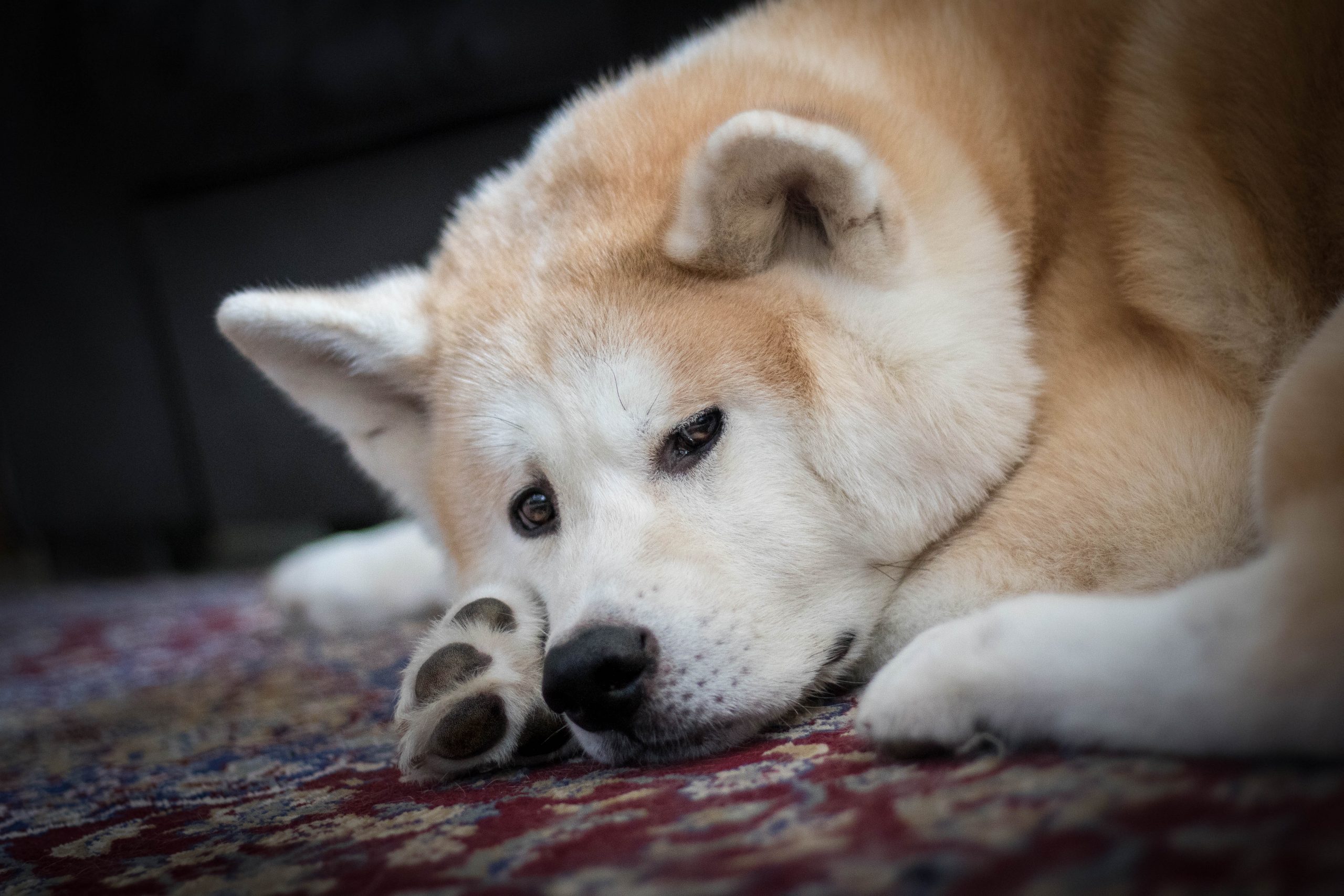
DO AKITA NEED A LOT OF SPACE ?
AKITA IN APARTMENTS
An Akita is perfectly suited to life in an apartment. They are very calm dogs (although less so when they are puppies or young) that will spend most of their time sleeping in a corner. As long as their walking needsare met, and they are offered mental stimulation, they can be well-suited to this type of living situation.
Of course, as for all dog breeds, Akita may bark which can cause problems with neighbours (especially in apartments).
You might often hear that “Akita don’t bark”.
My opinion on the matter?
Absolutely do not take this statement as fact, as you can indeed end up with an Akita that does bark and even one that howls! Believe me, this can be a problem in an apartment (personal experience). Similar feedback can be found in abundance on Facebook groups.
AKITA, AN ATHLETIC DOG ?
If napping is a recognised sport, then yes, they are masters in the field!
Generally speaking, Akita are not an athletic breed. In fact, they do not have the morphology for pulling sports or for jumping which are strongly recommended against. The Akita is highly susceptible to ligament tears!
That being said, if you adapt to the dog, if your dog seeks such activities and if all precautions are taken (in addition to a vet opinion for your Akita), some activities can be considered. However, if you are an active athlete requiring regular exercise and you want a doggy companion, I truly believe that the Akita will not be the dog for you.
However, an Akita can be a perfect companion for walks or hikes (once they have finished growing!). I personally love going out for walks with my Akita for hours. Albeit at their own pace, and especially at Yuki’s pace! We are constantly stopping to wait for him and I am always the last one during group walks. It teaches us to enjoy every minute of our walk, to observe and listen to the nature around us (sometimes a bit too much!). I love being alone in my own world with them for hours on end.
Akita can therefore be perfect companions on walks, when they decide that they need a break from their naptime!
Oh, and don’t be surprised if they decide to lie down during a walk: “carry on, I’ll catch up with you later”… or if you have to walk at an excruciatingly slow pace… patience is a virtue… 😉
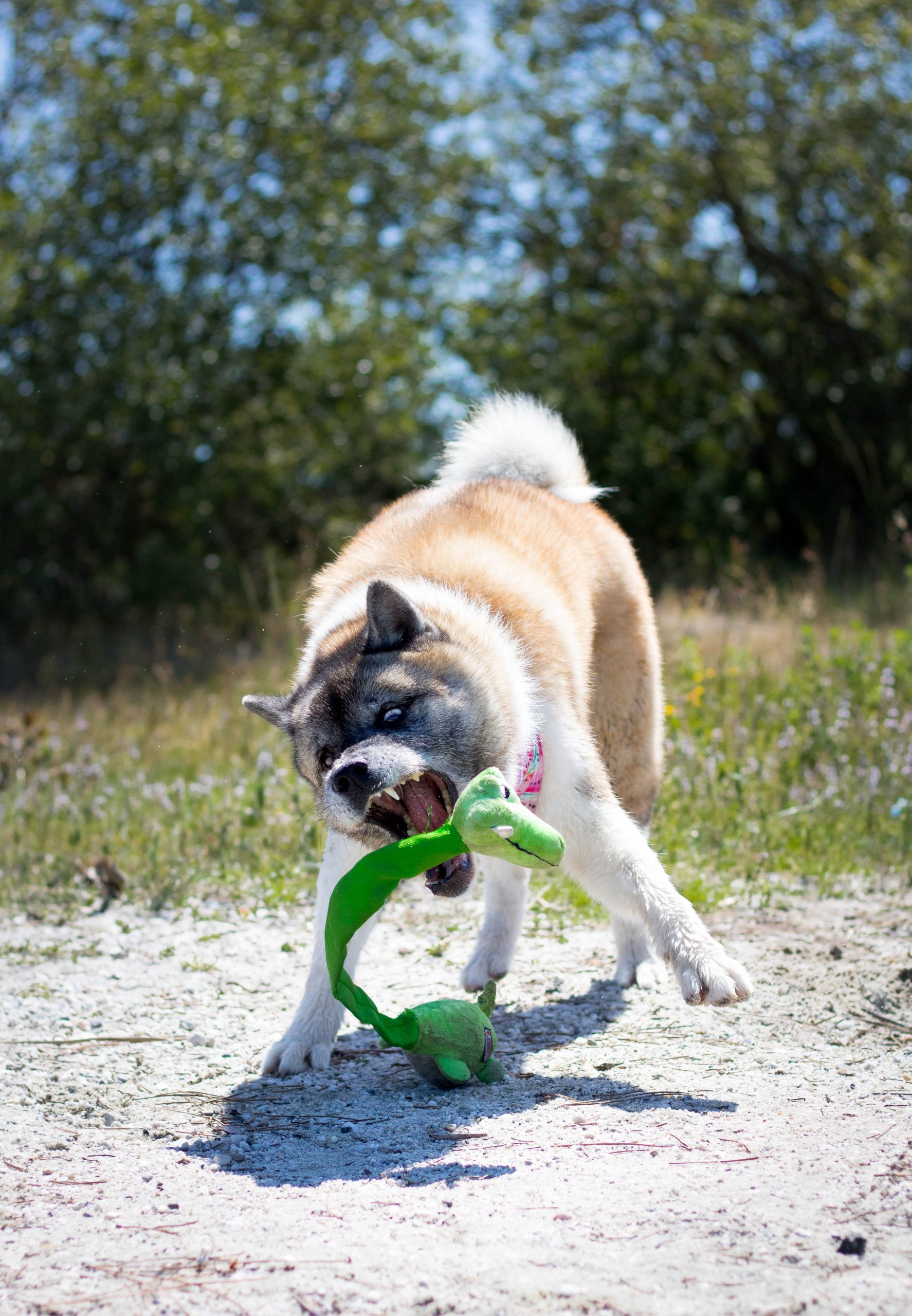
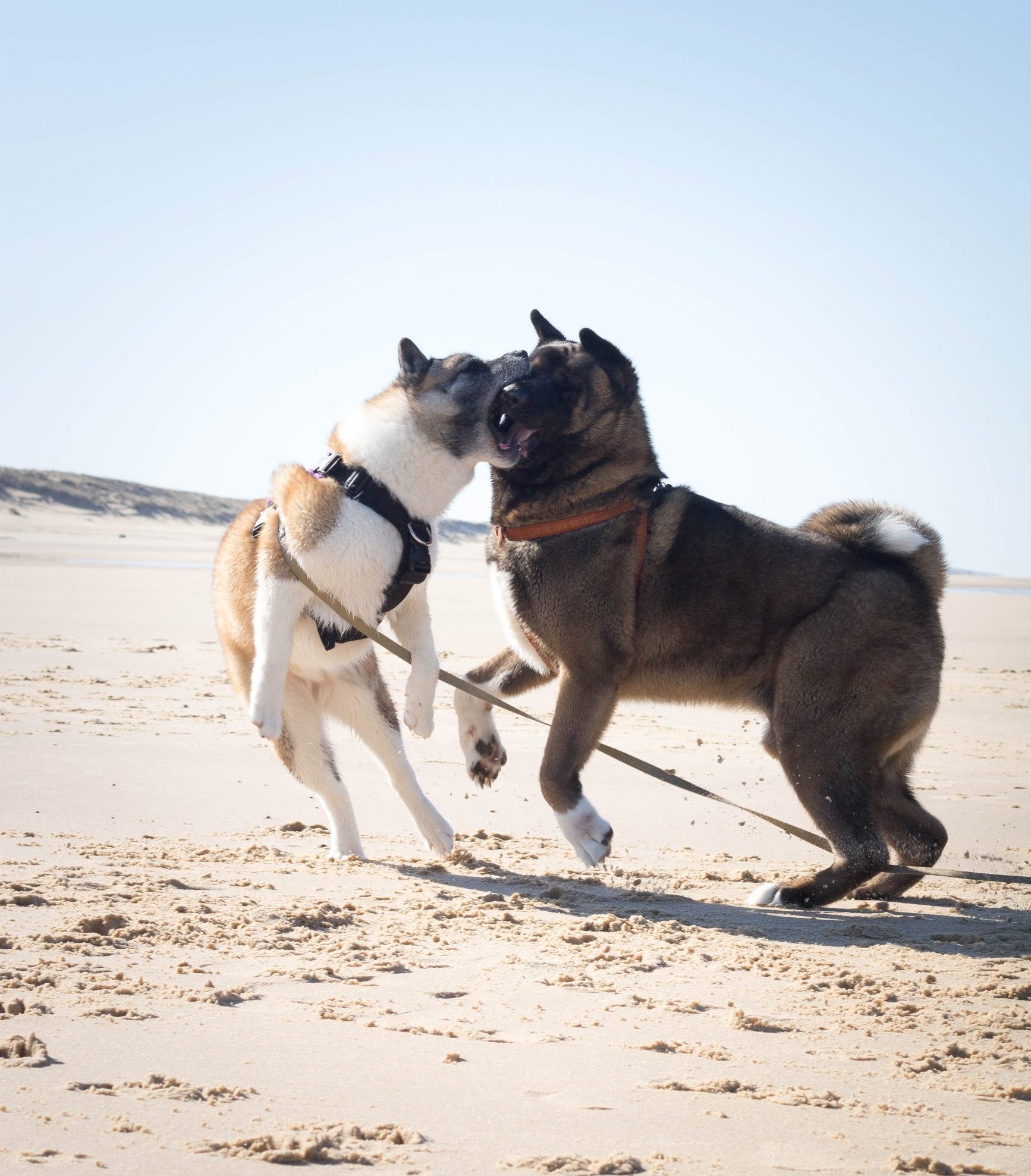
ARE AKITA HIGH MAINTENANCE ?
Akita have a self-cleaning coat, which is very practical on a daily basis, especially after walks. However, daily brushing is necessary.
One quick question: are you a clean freak? Are you allergic to fur?
We can all agree that Akita have a magnificent coat! But where do you think all that fur ends up when they blow their coat? Well, you need to be ready to live in fur because Akita blow their coat more than half the year!
There’s a price to pay for such a beautiful coat and undercoat 😉 and believe me, we aren’t talking about just a little bit of fur… Your hoover will struggle to keep up when your Akita starts to blow their coat!
AKITA HEALTH
It is absolutely vital to know that the Akita is unfortunately subject to two main diseases.
Sebaceous Adenitis (SA)
Sebaceous Adenitis (SA) is a hereditary autoimmune disease that requires regular lifelong treatment and which your dog can live a decent life with! This disease destroys the dog’s sebaceous glands but can also cause various health problems as a result of an autoimmune system deficiency (internal issues, repeated ear infections, inflammation of the eyelids and eyes, sores and lumps). Contacting a canine dermatologist for a biopsy to confirm an SA diagnosis is a must.
I urge you to visit Akita sans tabou & Akita zen where you will find detailed explanations both on the symptoms, possible treatments that have shown results over the years and testimonials. You will also find that there is a second disease that you should know about…
VKH (Vogt-Koyanagi-Harada)
VKH (Vogt-Koyanagi-Harada) or uveodermatologic syndrome, is a systemic and degenerative autoimmune disease which is hereditary and can be the result of a genetic predisposition.
The dog’s antibodies attack pigmented tissues. It is a serious, disabling disease that has no cure. It is vital that the dog is treated VERY QUICKLY (as soon as the first symptoms appear) and throughout its entire life with extensive and high-dose treatment. Such treatment often results in side effects and significant pain, etc. which may unfortunately lead to the difficult decision of euthanasia. This can be the result of a too-weak immune system which is an open door to viruses, bacteria, etc. Not forgetting the side effects of immunosuppressive drugs.
It is important to know that for both of these diseases, there are NO SCREENING TESTS and much less a vaccine as some have claimed! These two diseases HAVE NO CURE! Treatment must be continued FOR LIFE and despite this, relapses are frequent! These diseases demand personal, emotional, and financial investment on a daily basis.
It should be noted that NO ONE is safe from these diseases! This includes breeders and therefore private individuals too. Your breeder must take it upon themself to mention these diseases to you.
A genetic research programme is currently being carried out by the CNRS (French National Centre for Scientific Research) in Rennes. To conduct their studies, they are in constant need of DNA taken from dogs with these diseases (SA and VKH) and of skin biopsies from canine families. If your dog has SA and/or VKH or if you have a canine family, it is important that you help this programme by contacting the CNRS.
VERY FRAGILE OVERALL HEALTH…
The Akita (especially the Inu) has become a very fragile dog. Affected by many different diseases and issues such as dysplasia, allergies (feedback on skin issues are shocking), ligament weakness (too-frequent ligament tears), epilepsy, etc.
I have personal experience with this and notably as regards my Akita Inu’s health who suffers from digestive sensitivity, epilepsy, various skin allergies that require daily care, all year round, without pause! This requires a lot of time, energy and money… The damage caused is staggering.
For this reason, but also for others, it is extremely important to choose your breeder wisely… The breeder you choose should show you any health tests performed both on the father and the mother of the puppies. He or she must also address all of these aspects of the Akita breed. Of course, nature means that one can never be guaranteed that there will be no issues BUT by carefully choosing your breeder and therefore your dog’s sires, you can maximise your “chances” of acquiring a puppy in good health.
THE FUTURE OF THE AKITA BREED
The Akita Inu, as well as its Japanese cousin the Shiba Inu, and the American Akita are experiencing an exponential growth in abandonment rates over the last few years.
These are all too often related to “behavioural issues”, such as those described above, despite these issues being highlighted on social media and websites.
Far too many people are absolutely not suited to this breed. Far too many are overwhelmed, do not wish to invest the time, energy and money (for the help of a professional) in order to put in the necessary work.
I urge you to visit the AKITA HOME OFFICIEL organisation Facebook page in order to take stock of the abandonment issue that is plaguing these Japanese breeds. My next blog post will be all about AKITA HOME.
CONCLUSION
You now understand the importance of prevention! Gather information beforehand and ask the right questions! Find out whether you are suited to this breed rather than the other way round!
Akita are both a magnificent and complex breed. Many will see “faults” where, on a daily basis, I see specificities that teach me so many things, about myself and about the canine world.
Constantly questioning yourself is essential. You must be ready to take on an Akita, accept their identity, adapt to them while rounding the edges to live as best as possible with the world around you.
NEVER FORGET:
With an Akita, nothing should be taken for granted, but is that not what is so interesting and rewarding?
I am often asked if, later in life, I would have another Akita (Inu and/or American), my answer is clear : YES!
I have fallen completely in love with this beautiful breed. They are so interesting and fascinating on a daily basis. I greatly enjoy teaching others about the Akita, warning them about what an Akita can be like, but I also greatly enjoy sharing my passion and love for this breed.
If you have any questions, or if you want to discuss your Akita, don’t hesitate to leave me a comment 😉
Yours Akitally,
Laetitia
MUST READS !
Blog post “Hachiko and the Akita Inu – ハチ公と秋田犬 – the Japanese dog”. An article that I LOVE on the history of the Akita in comic format. Really fun and completely kawaii!
